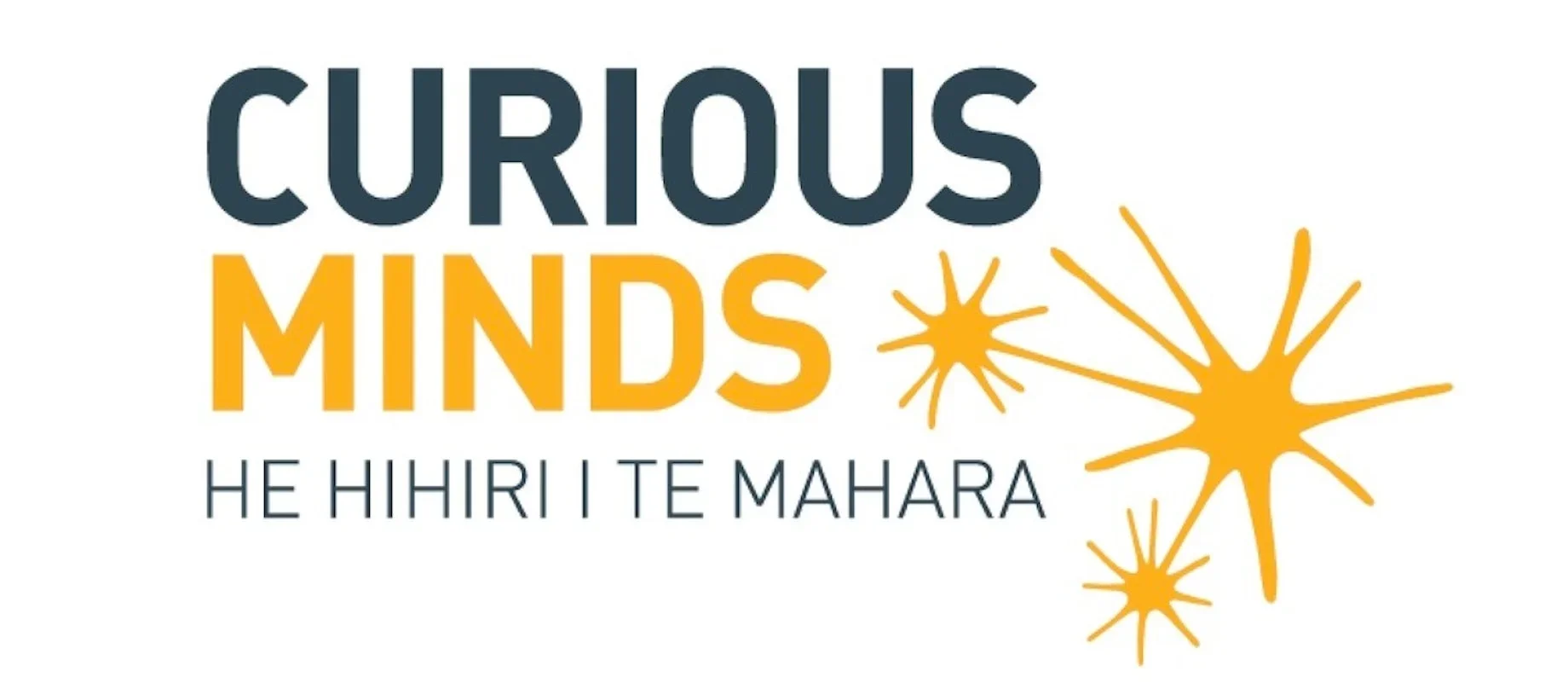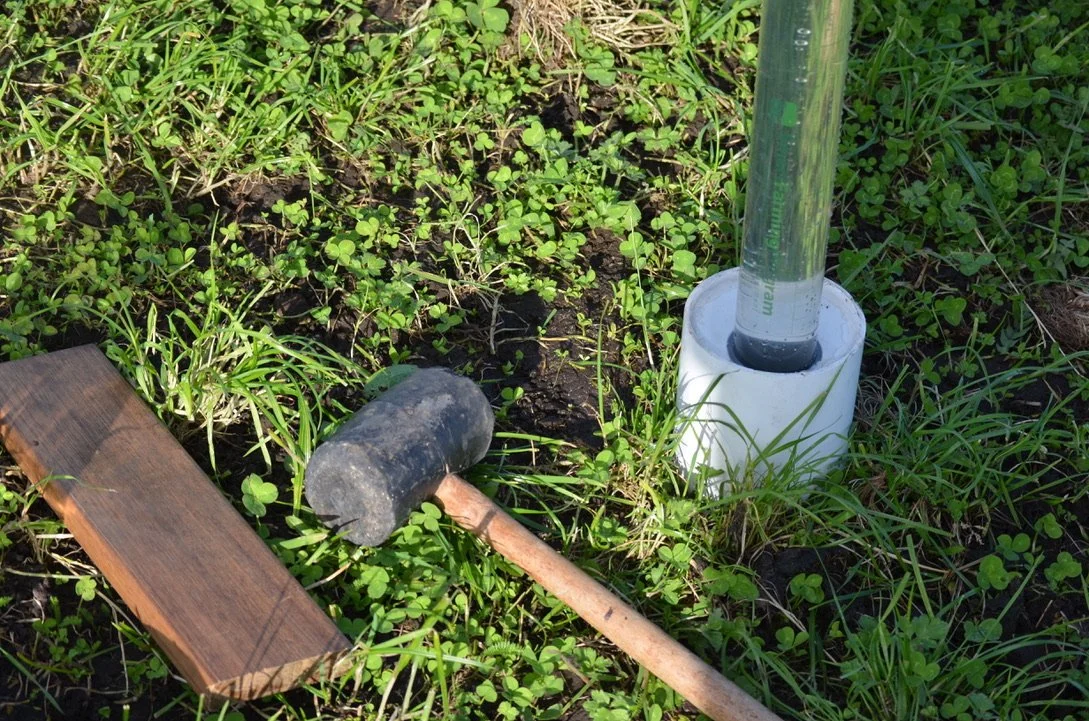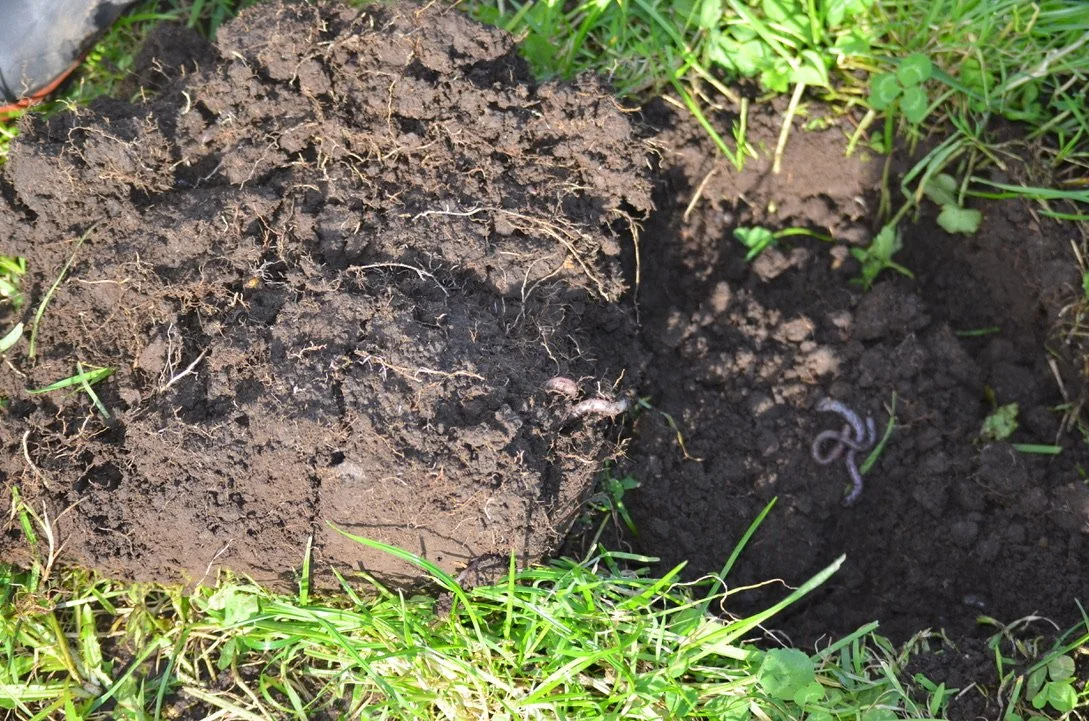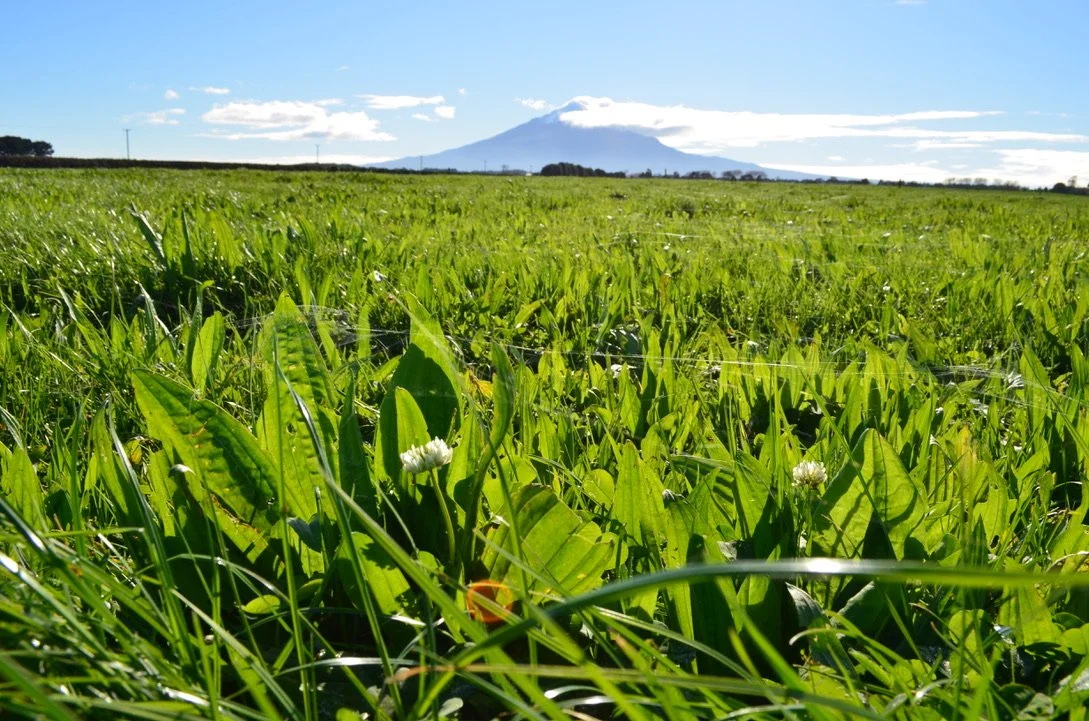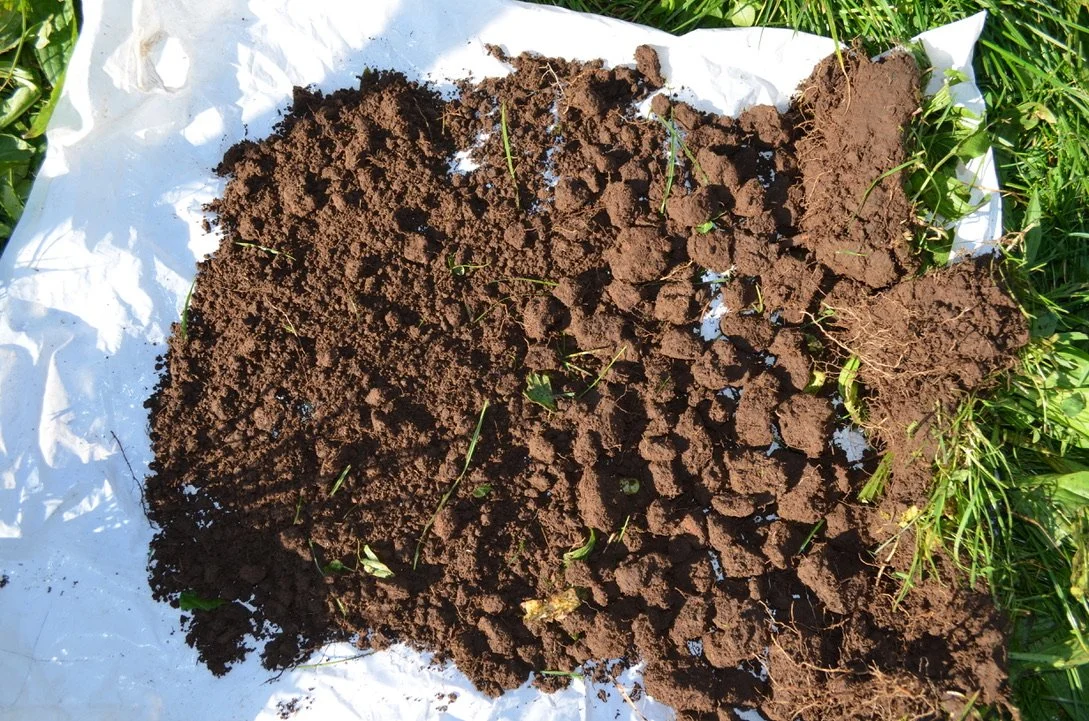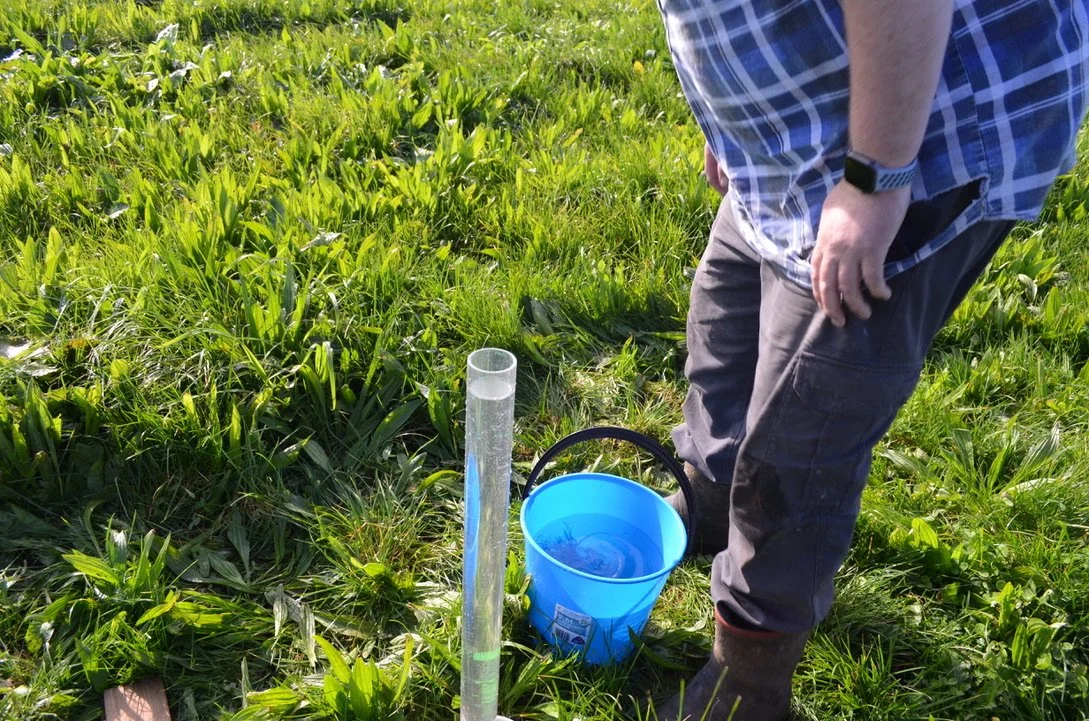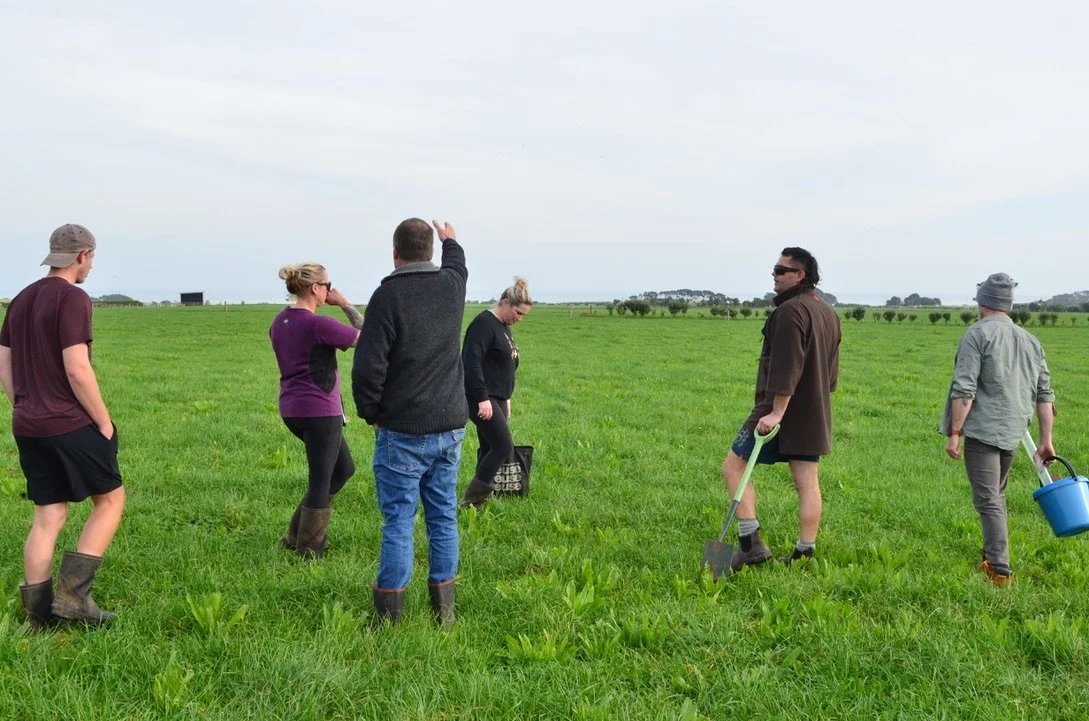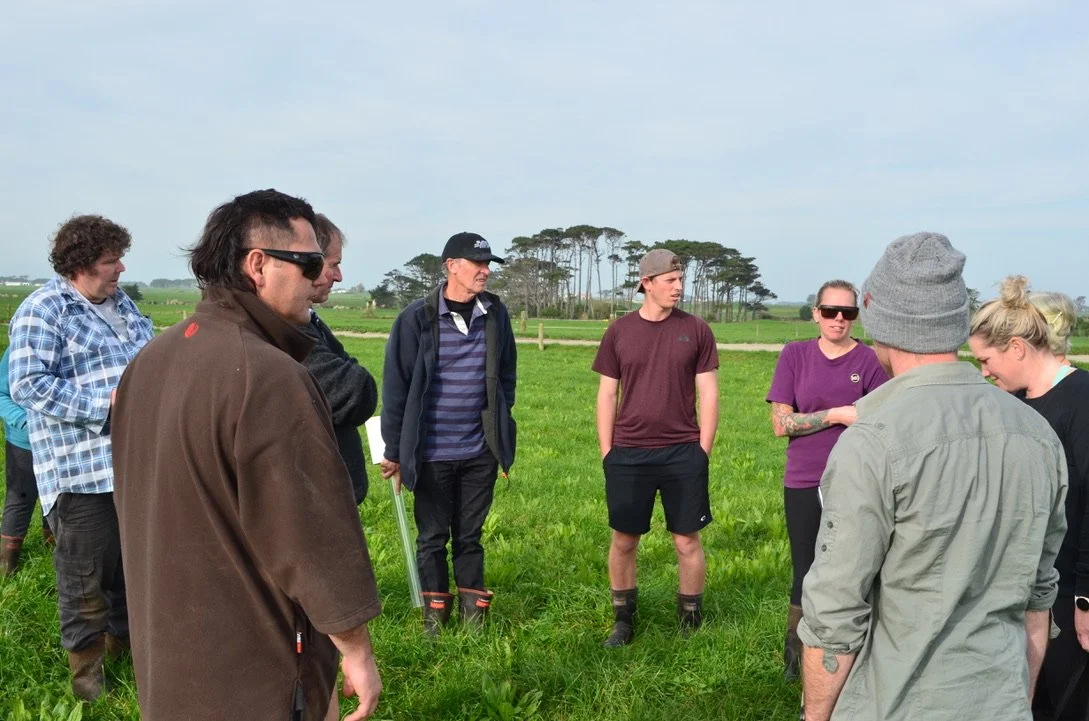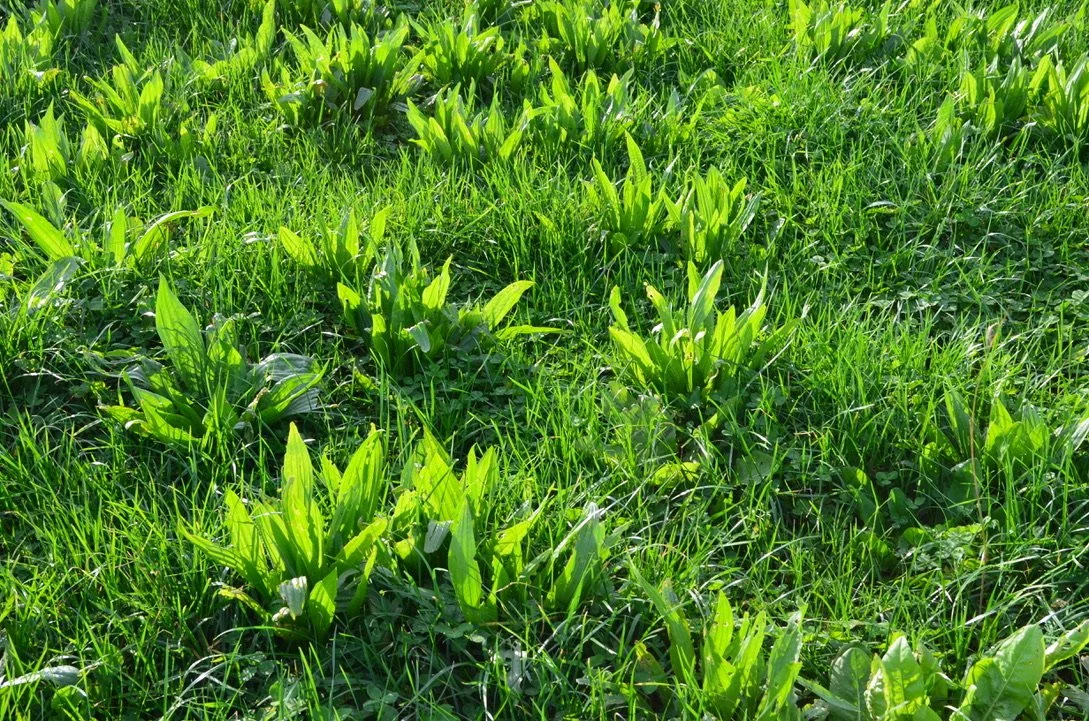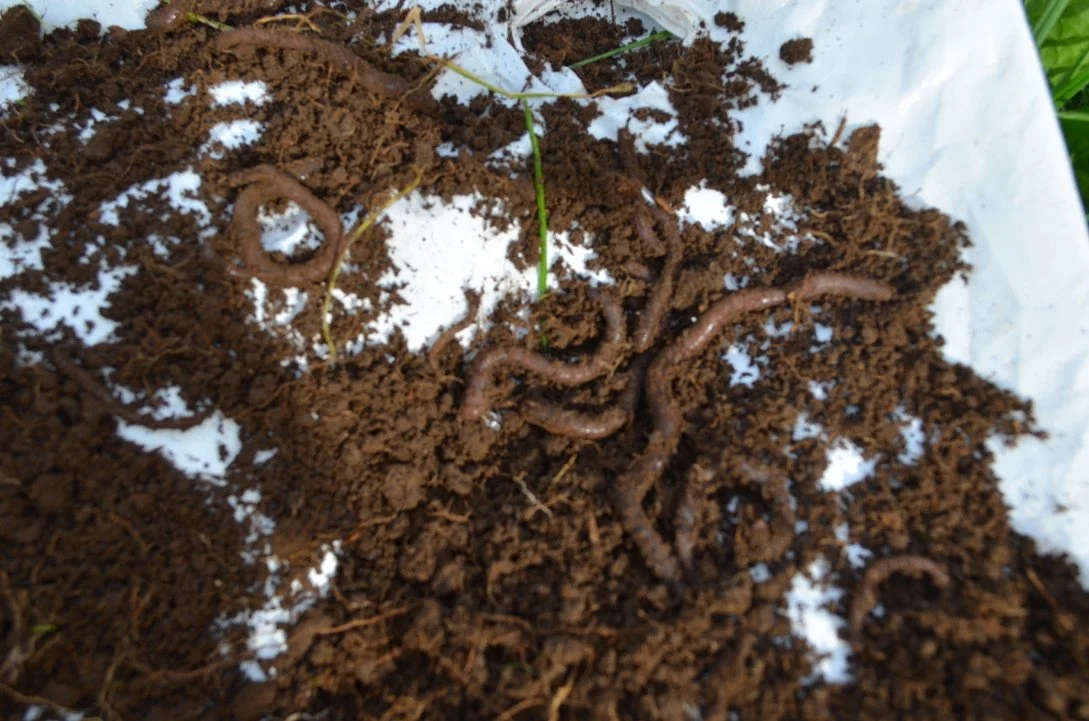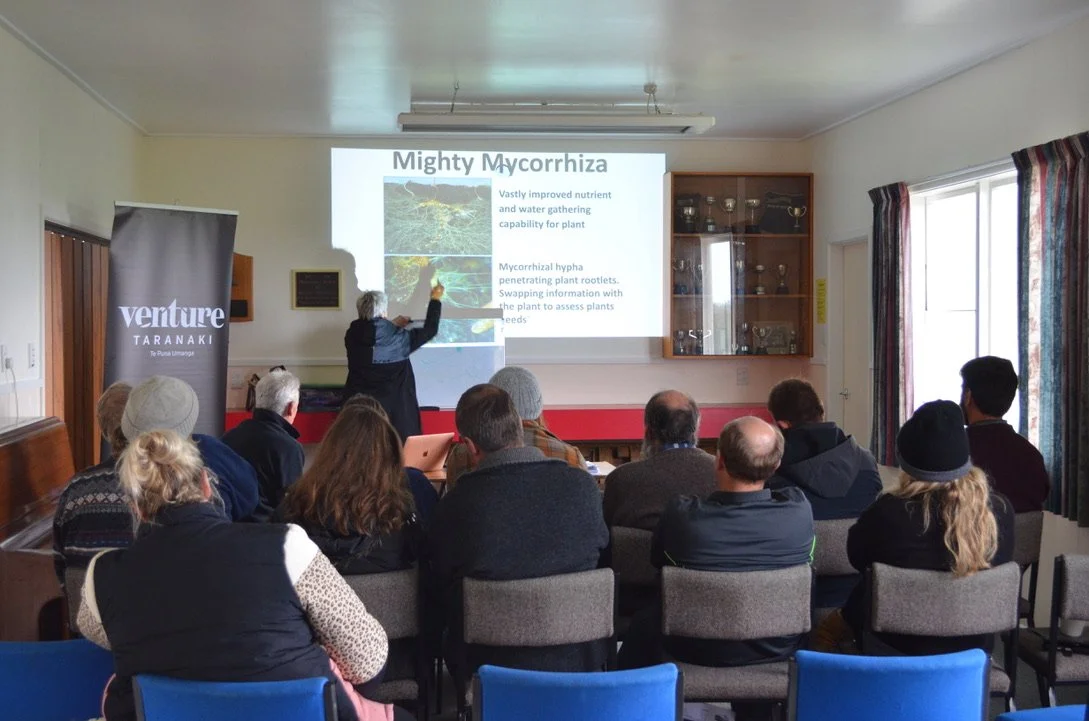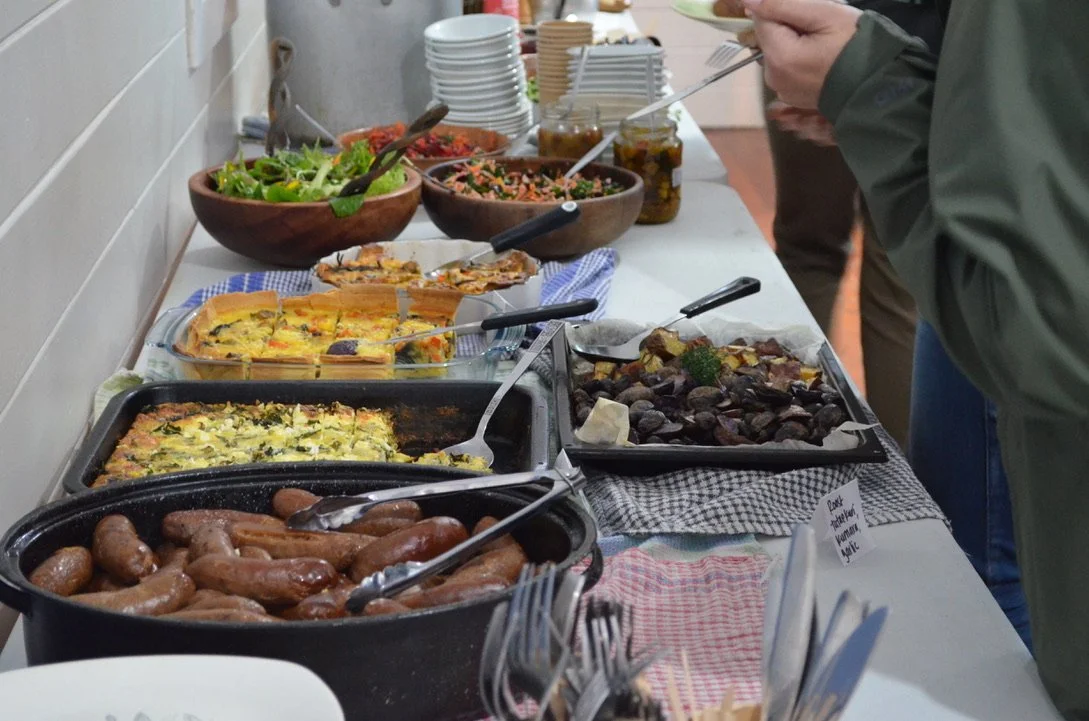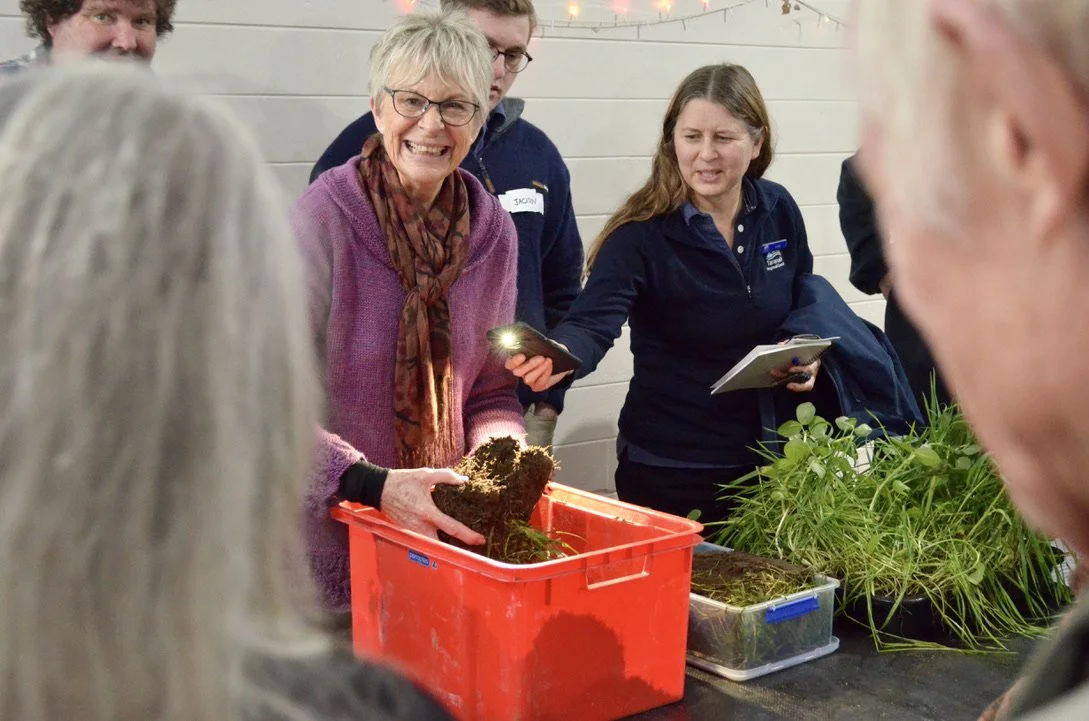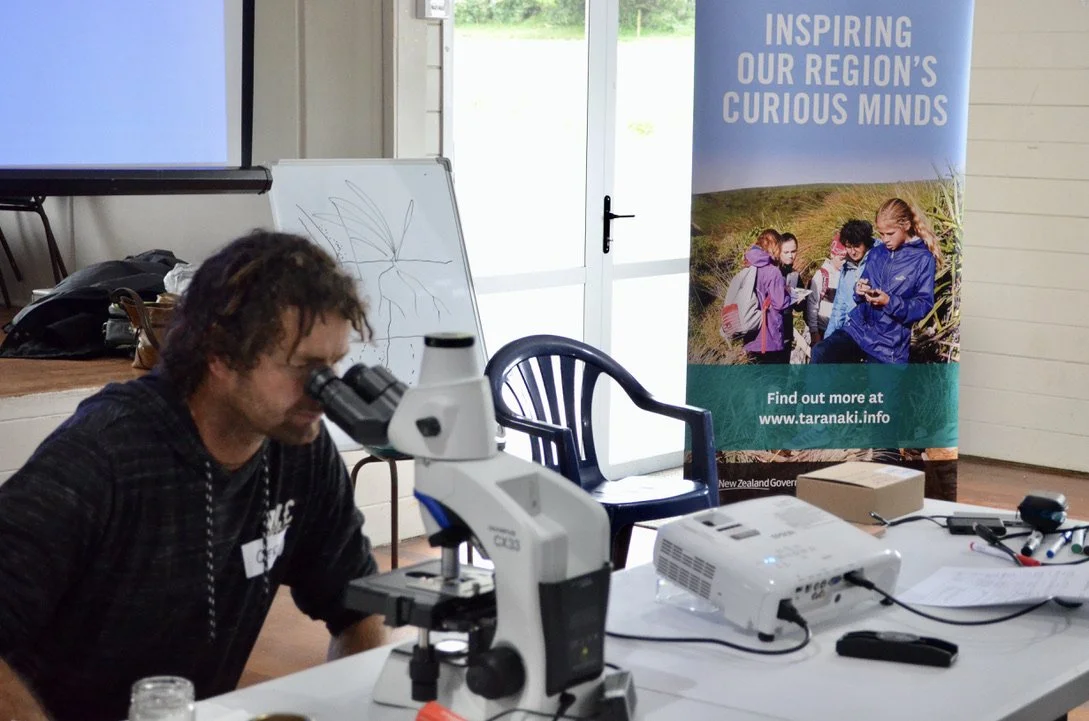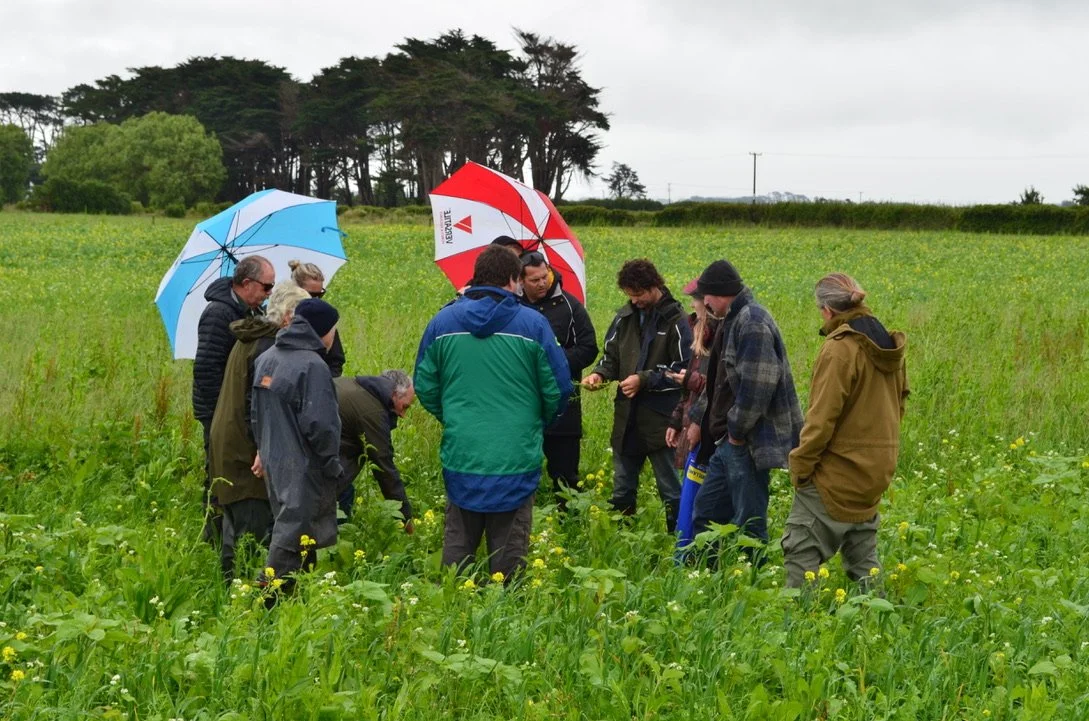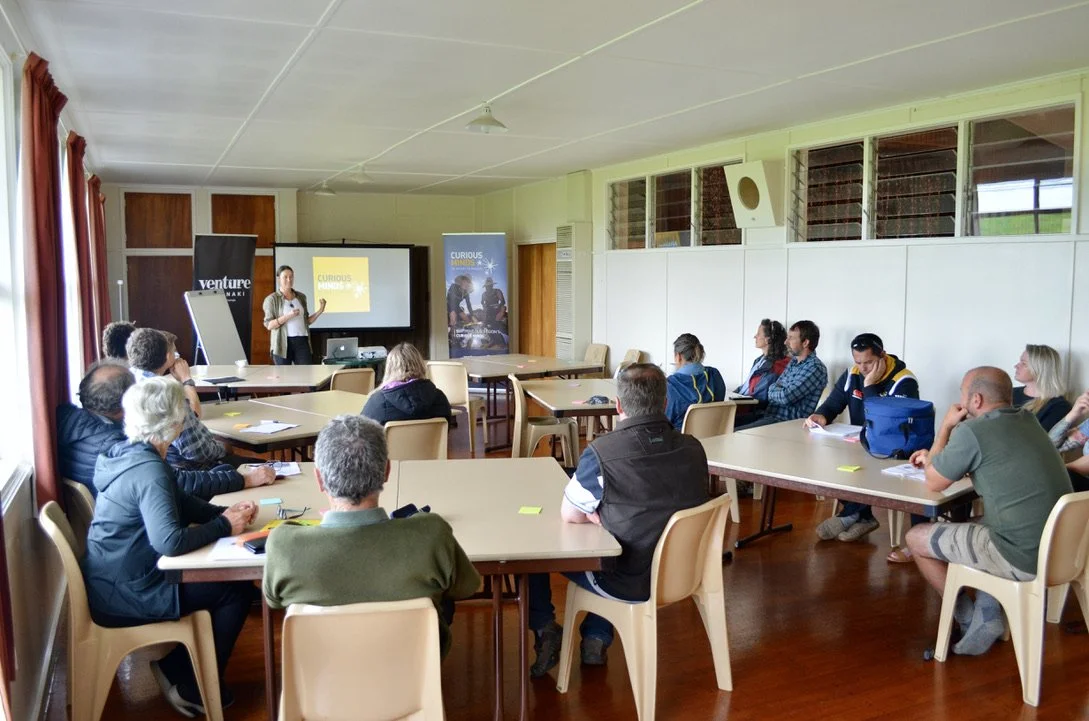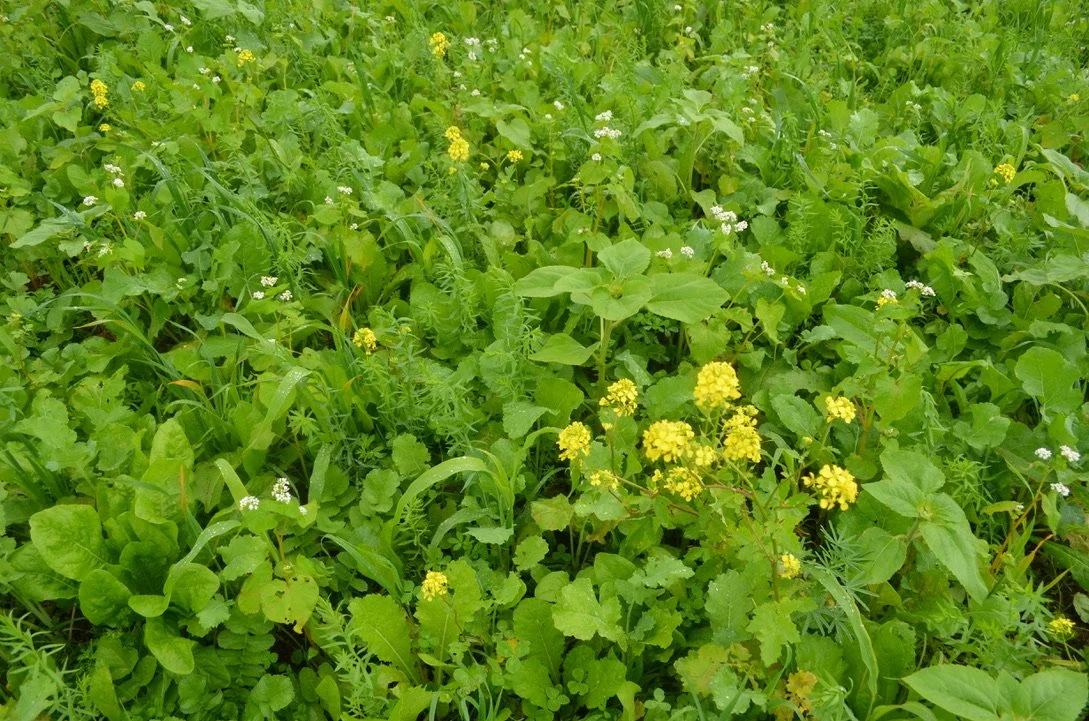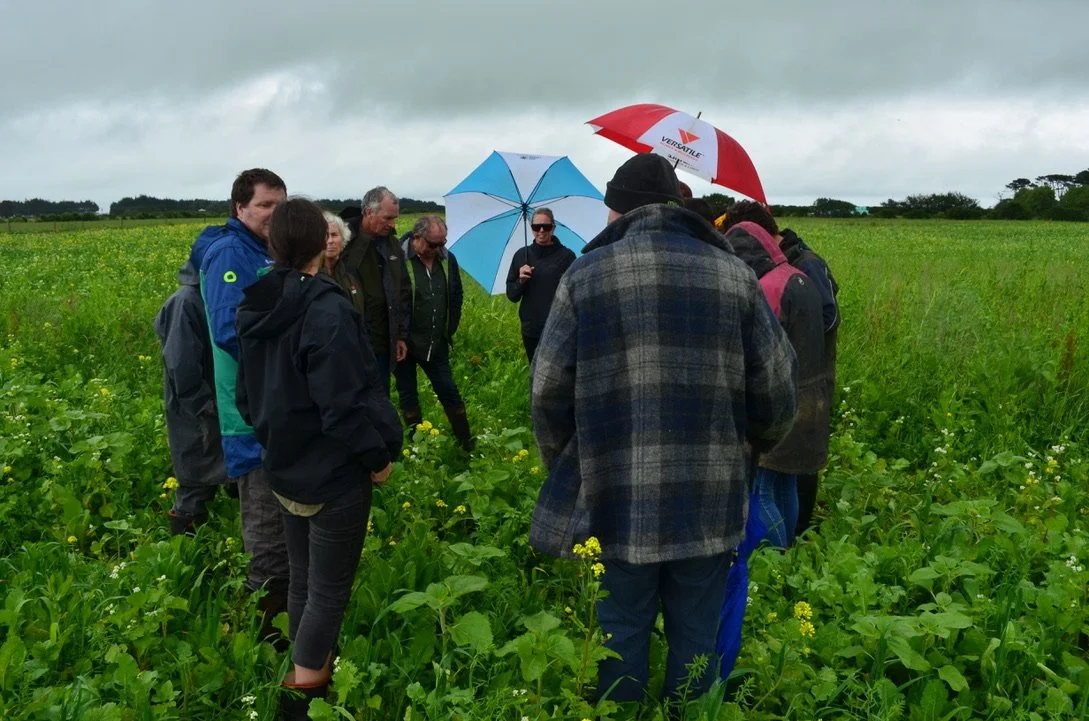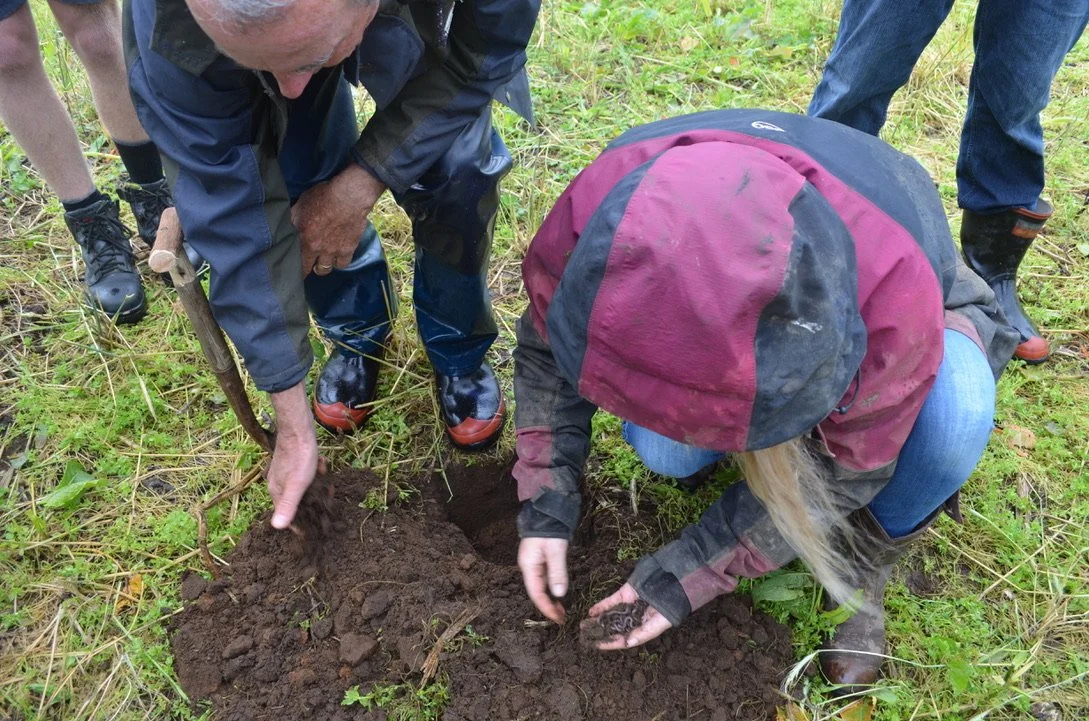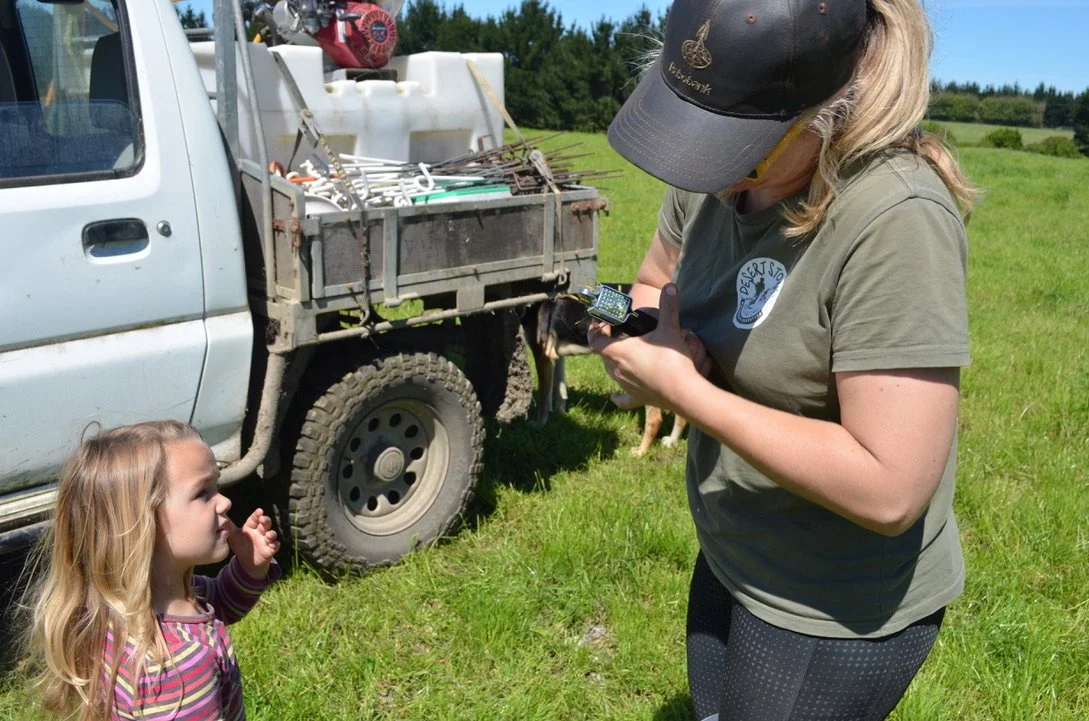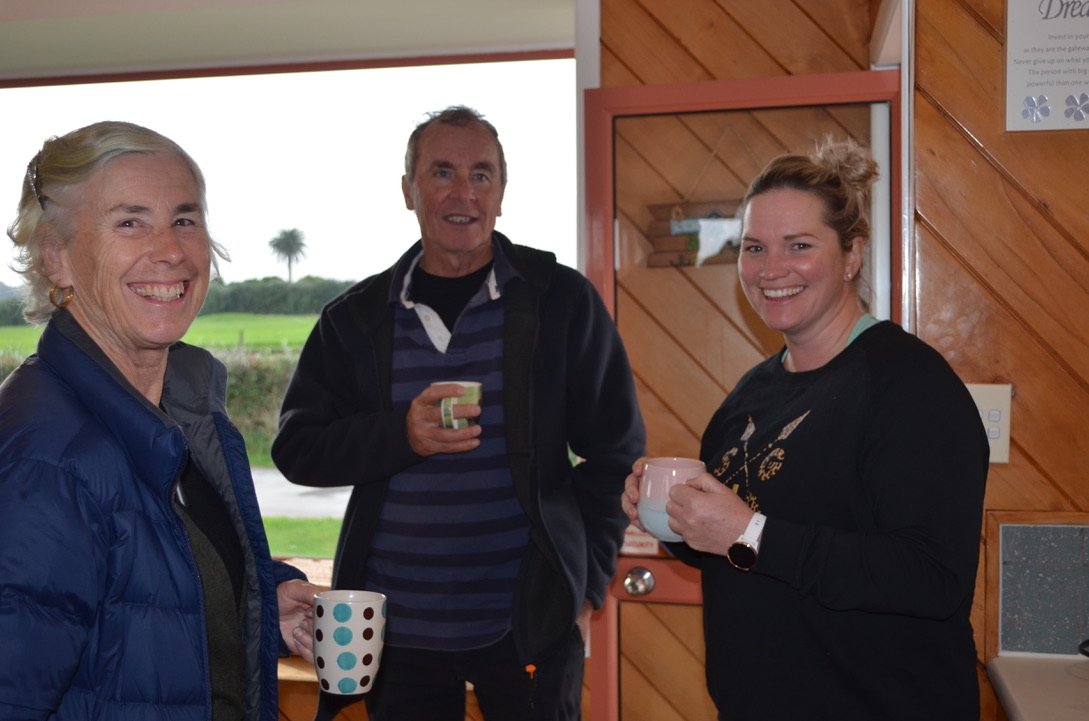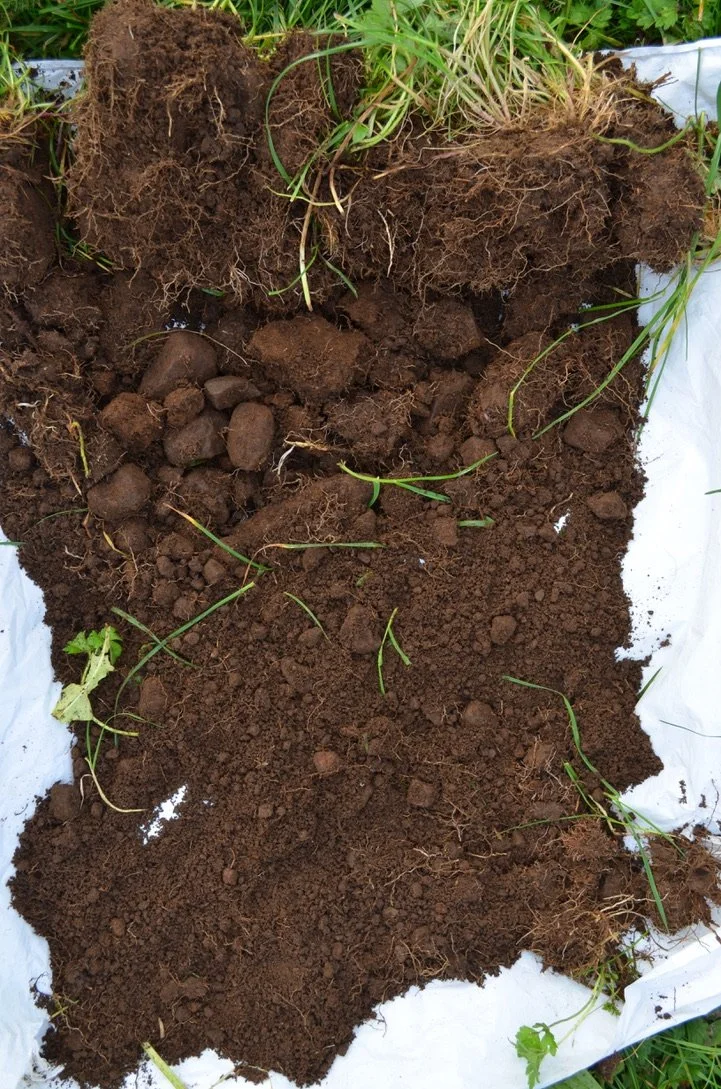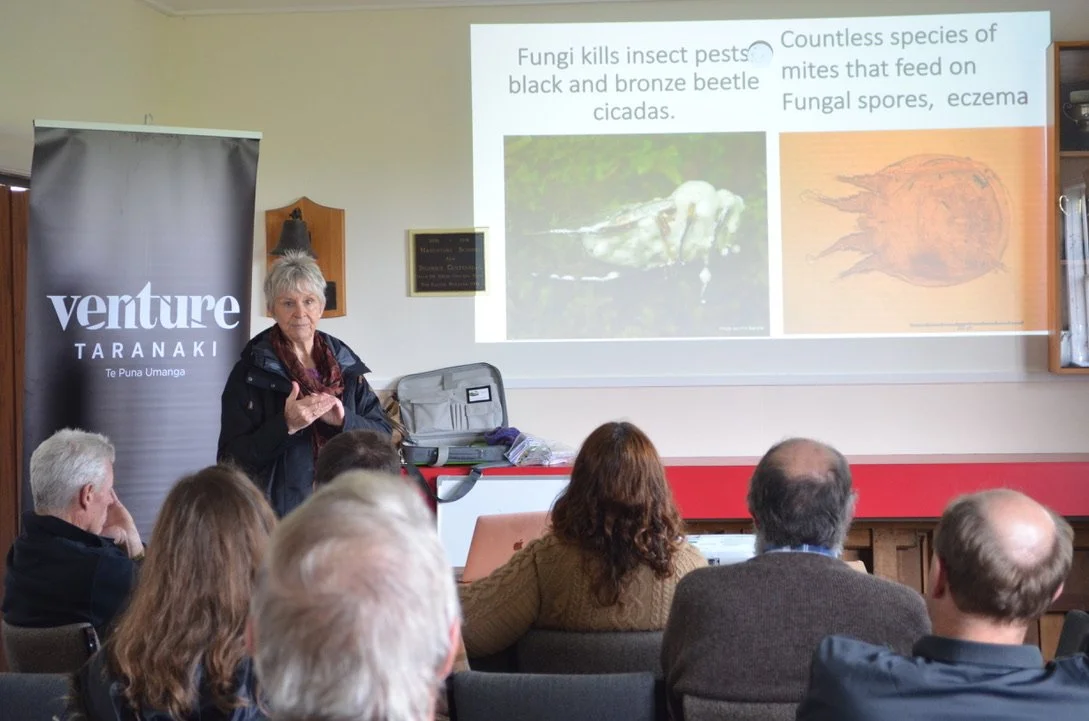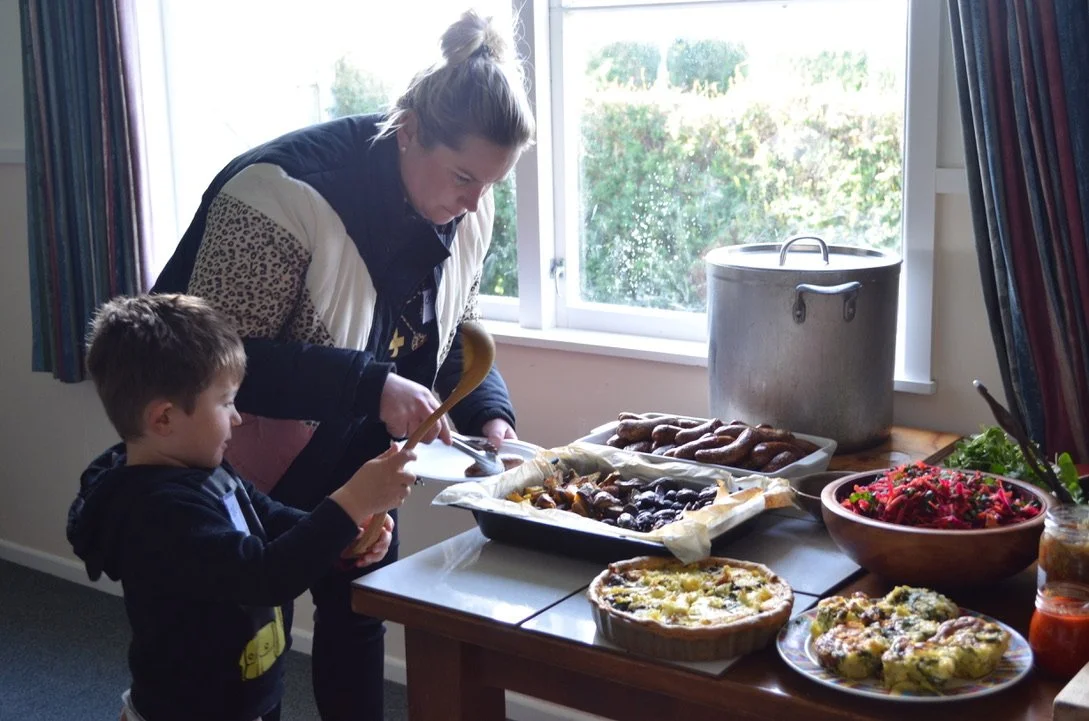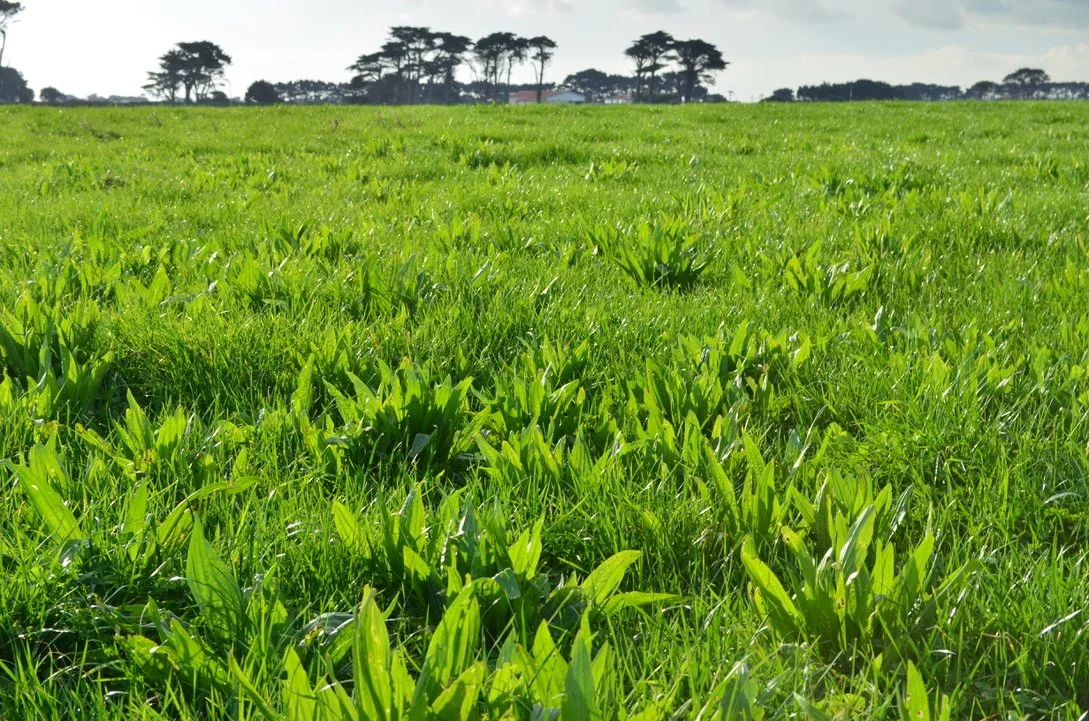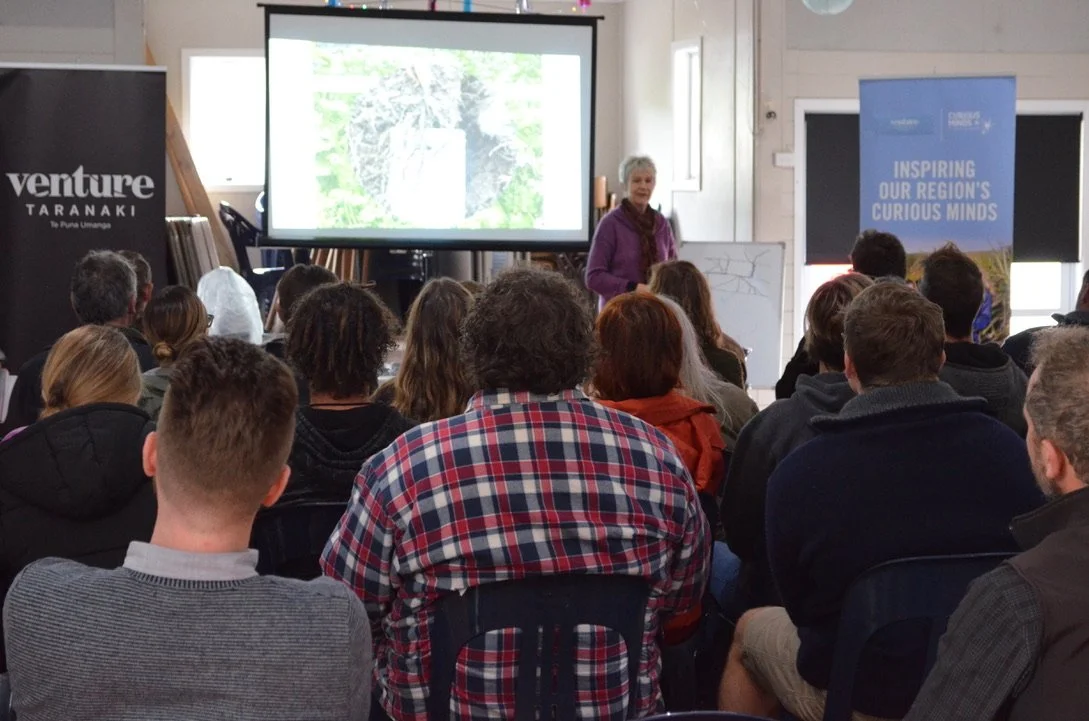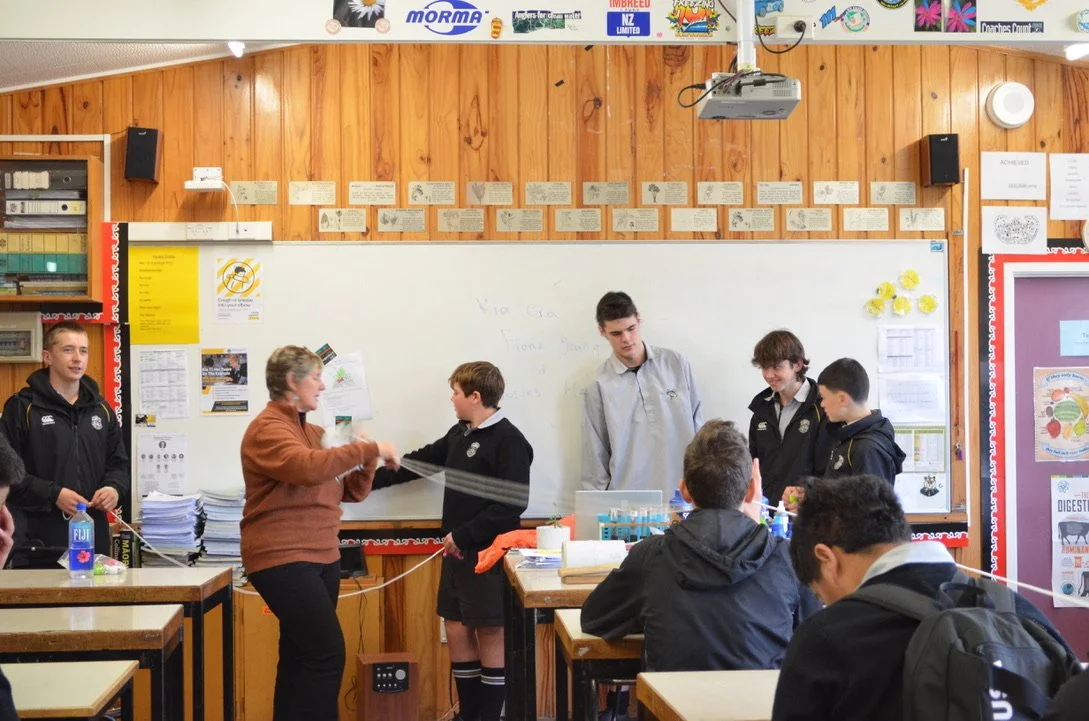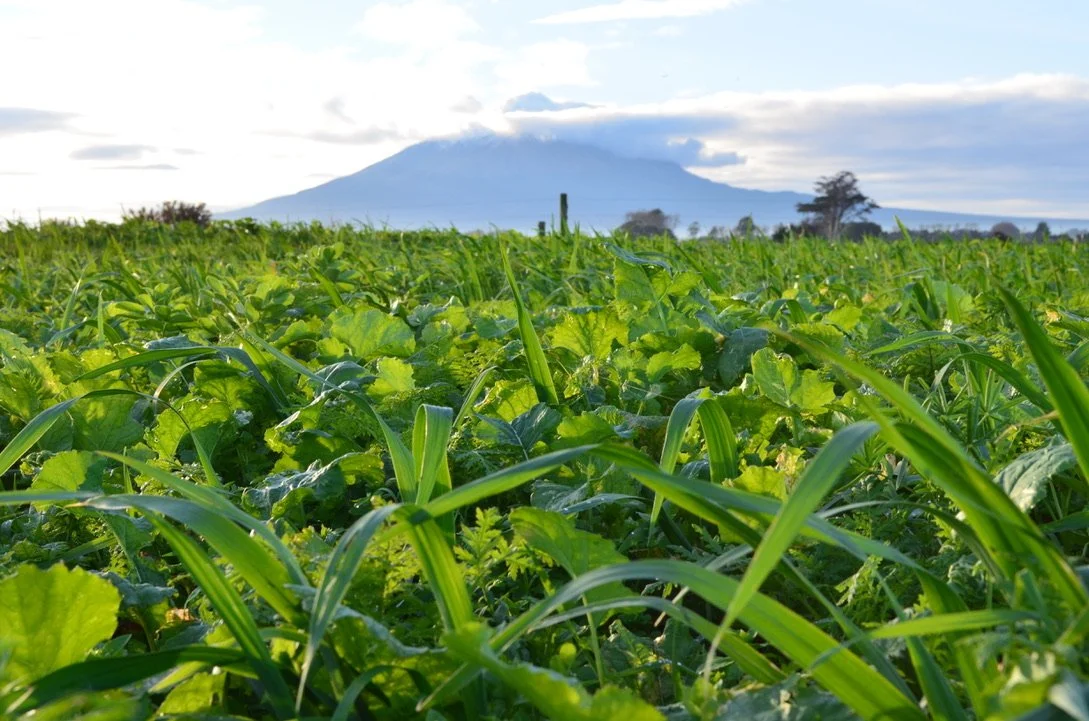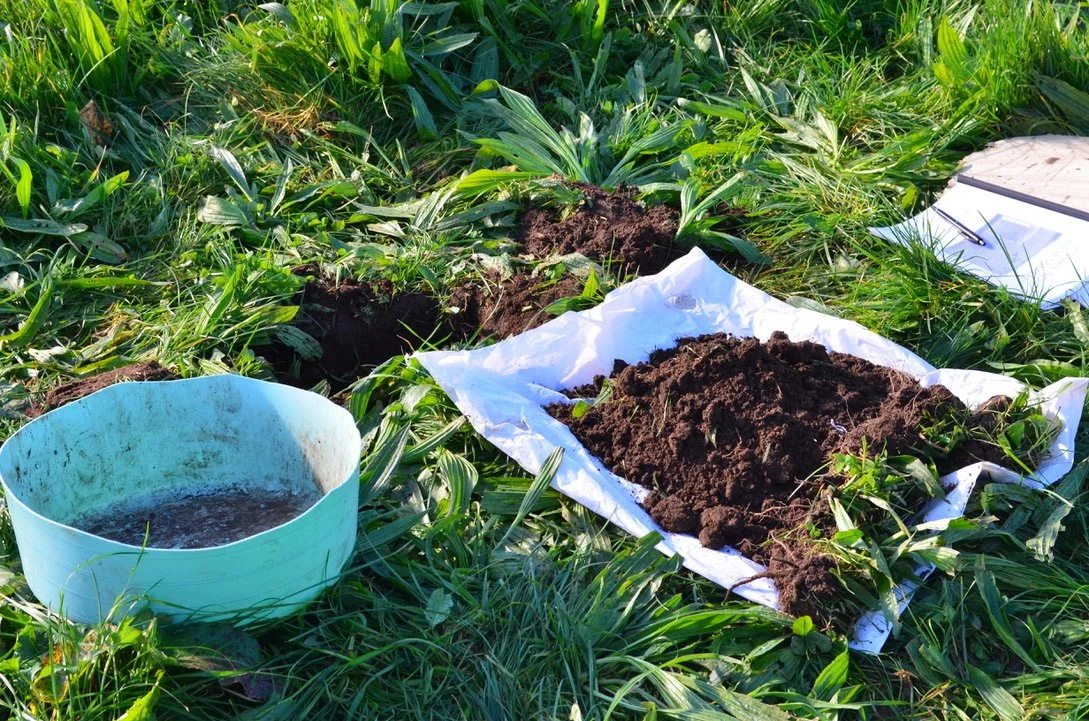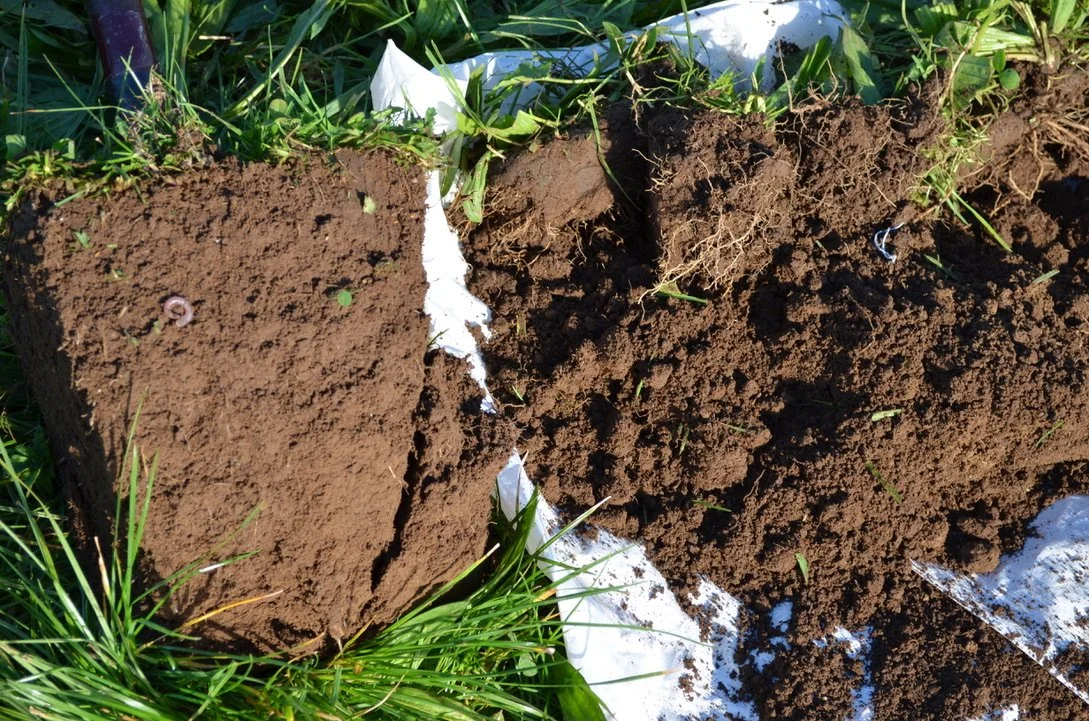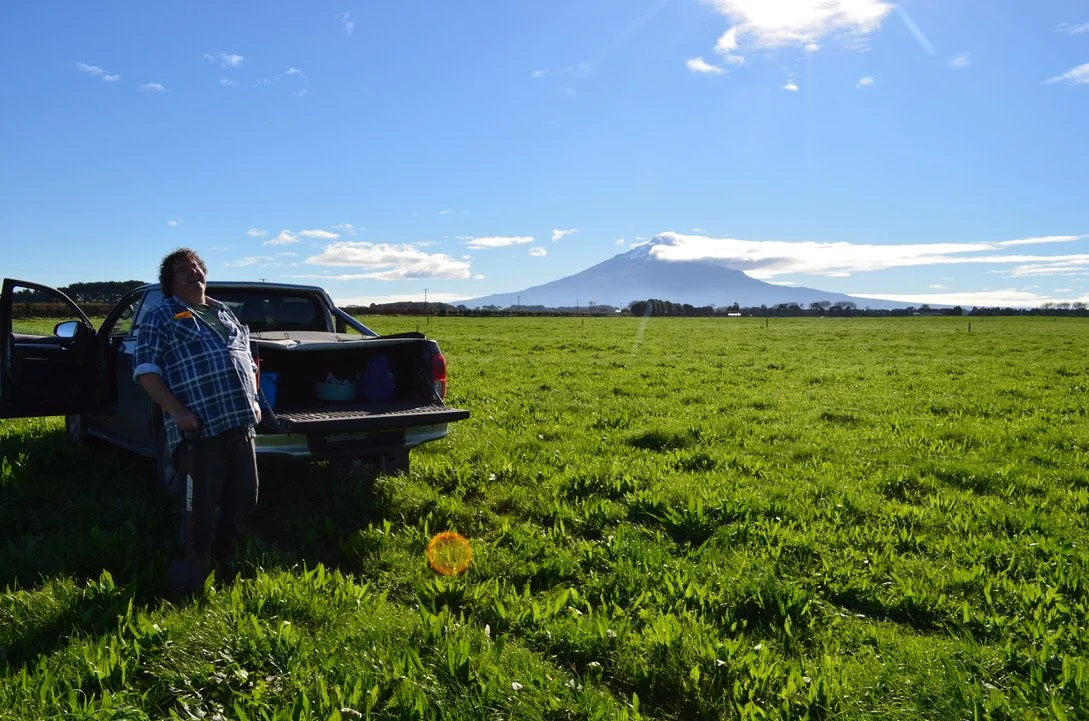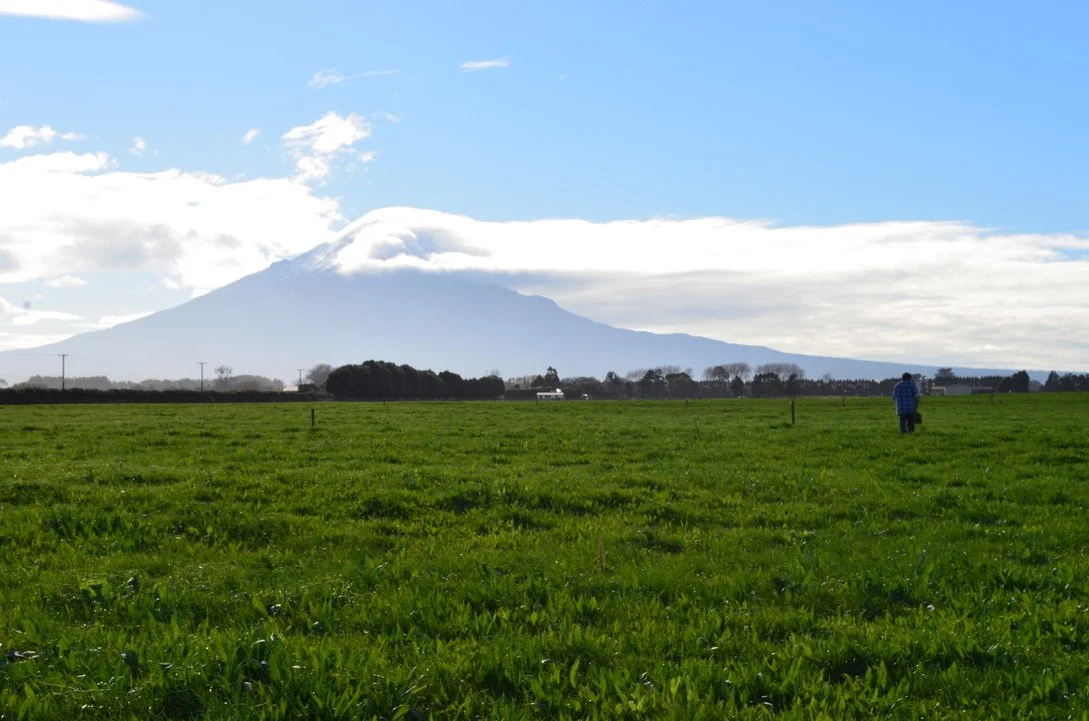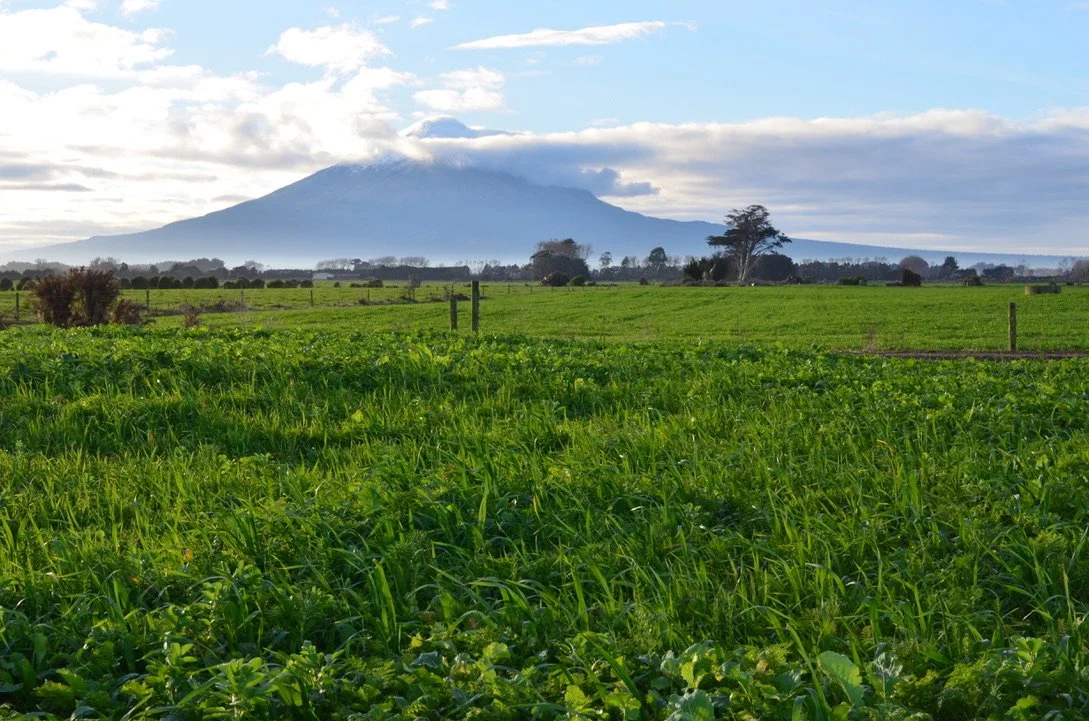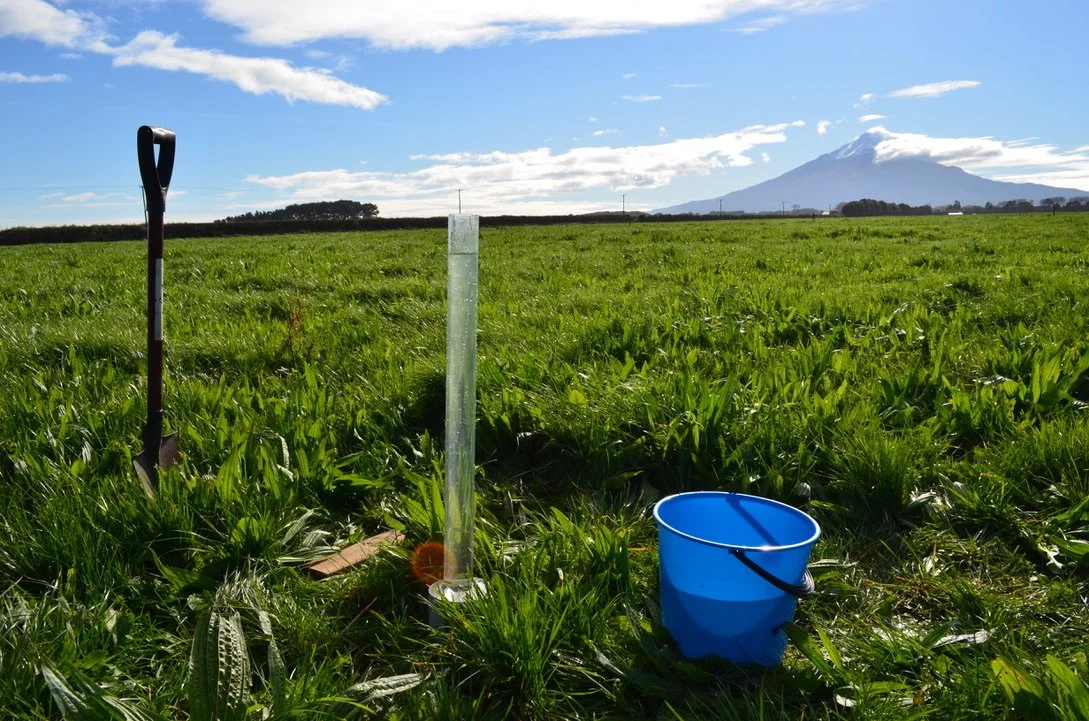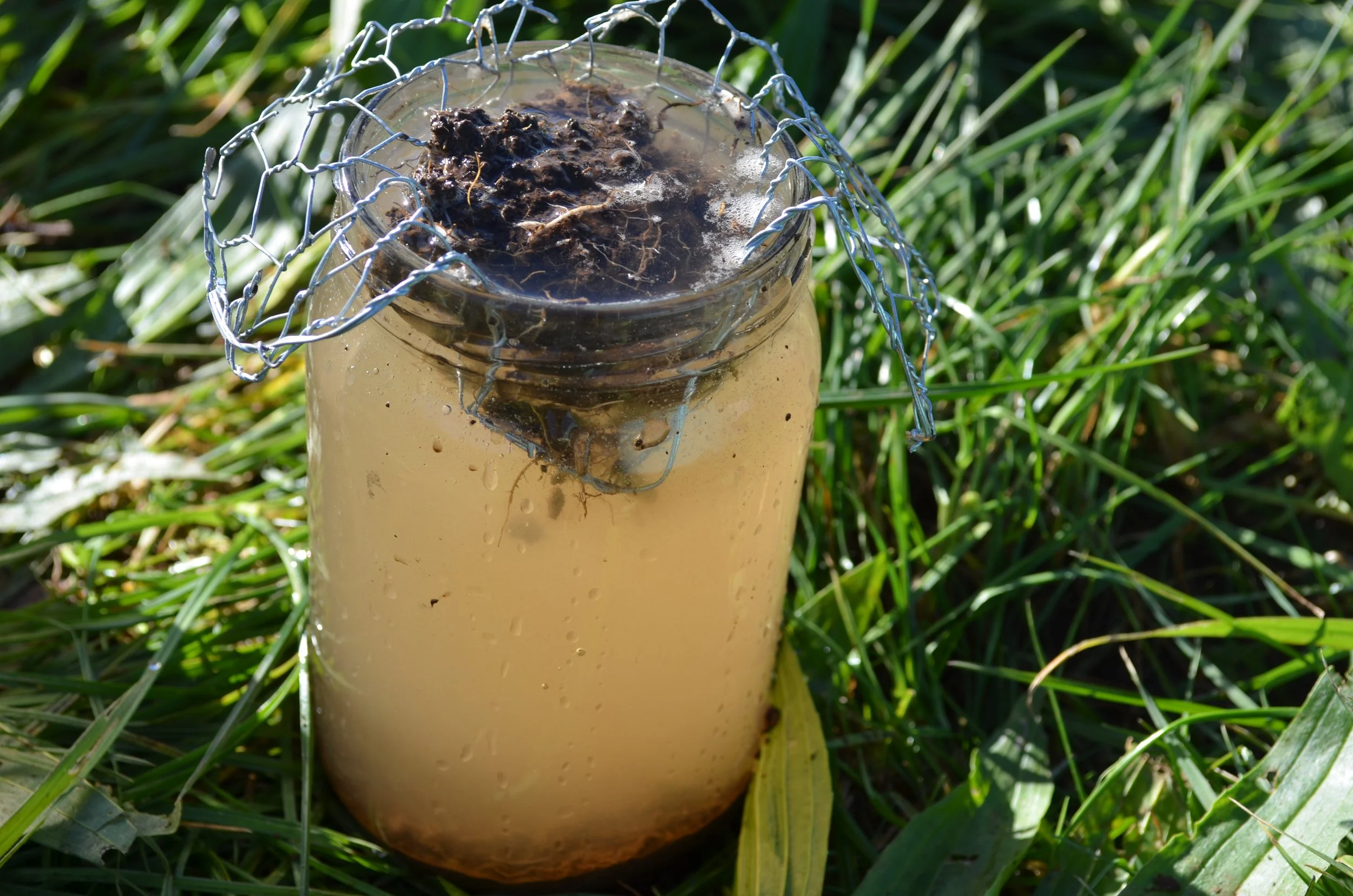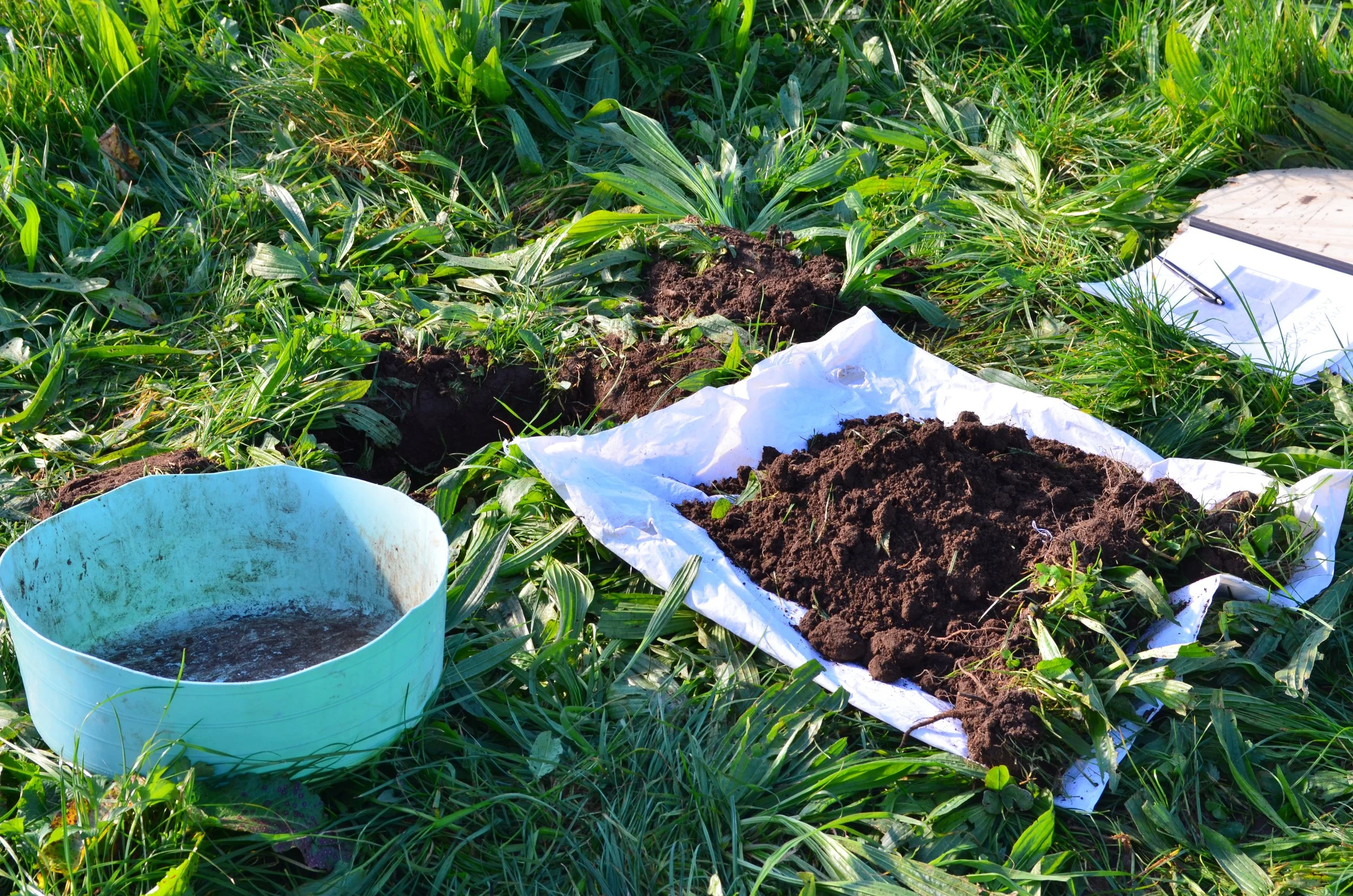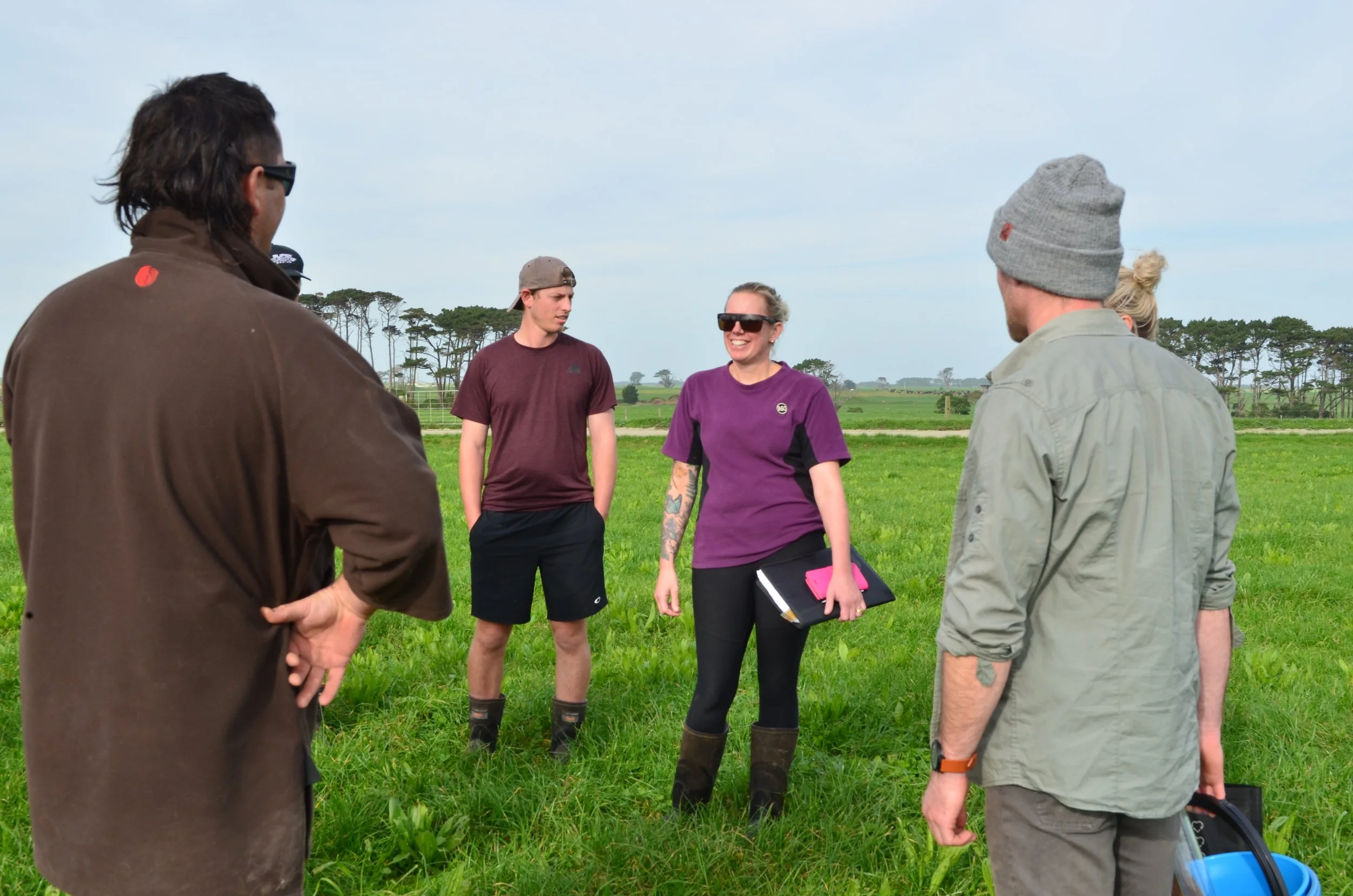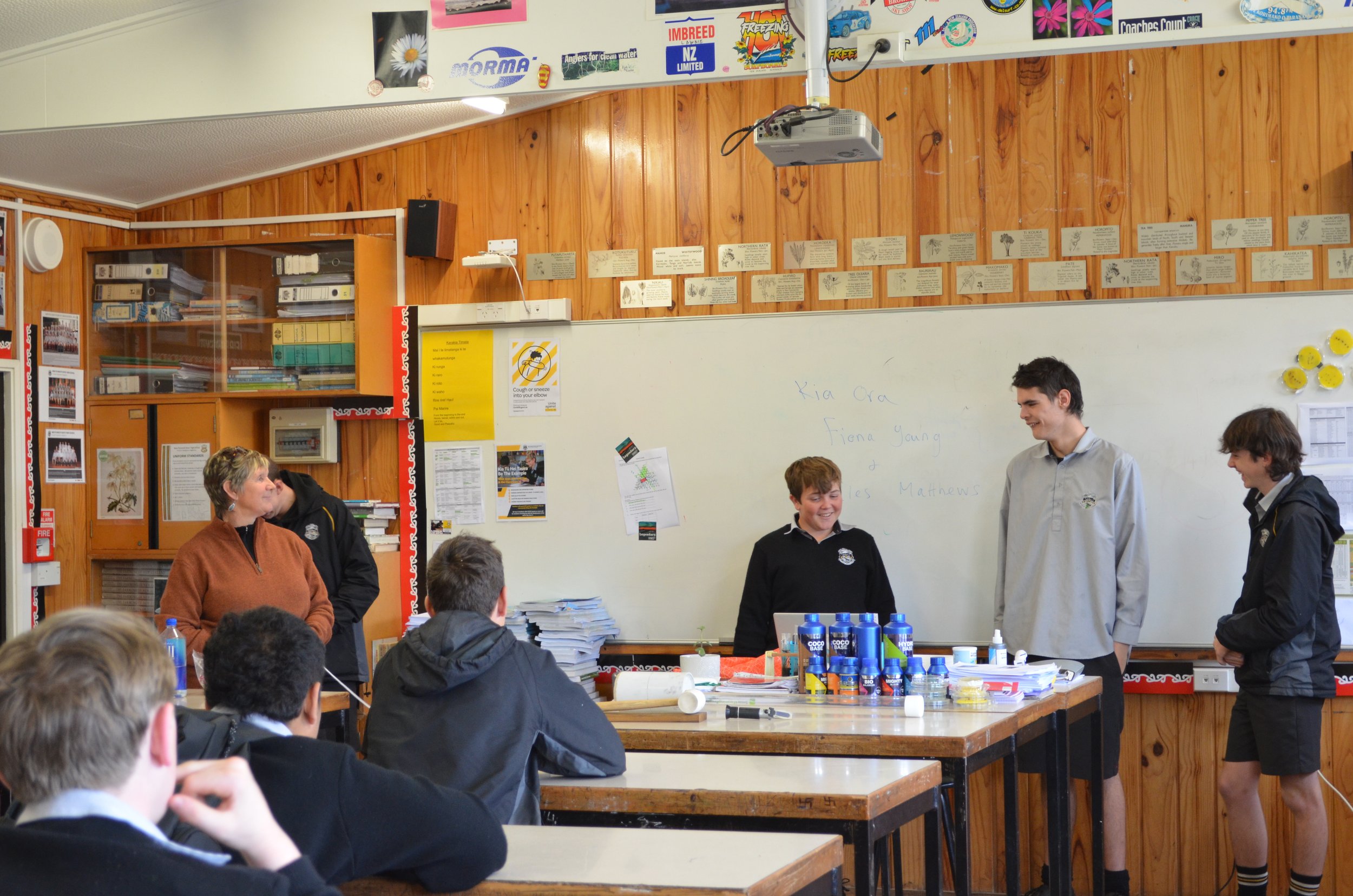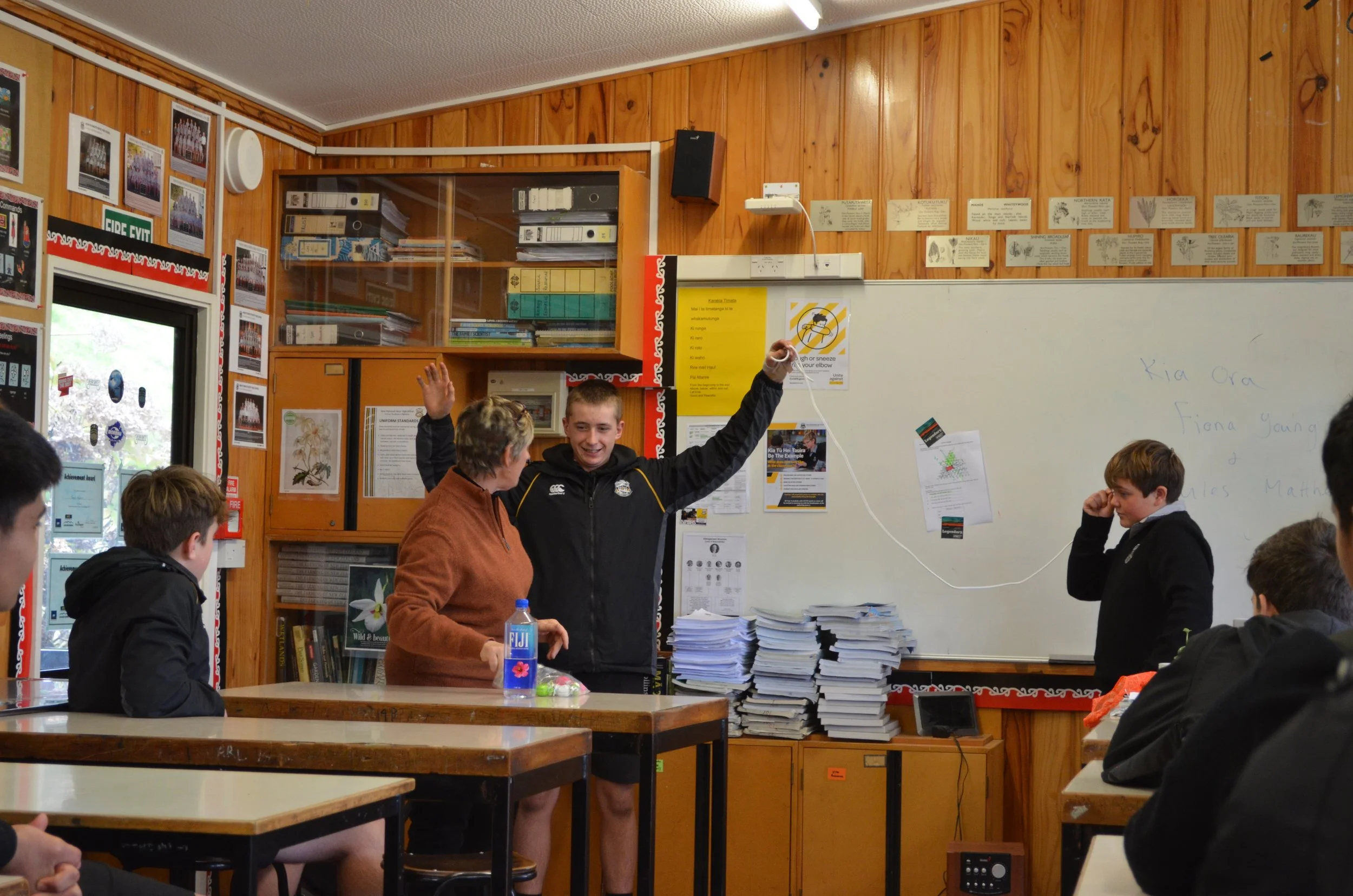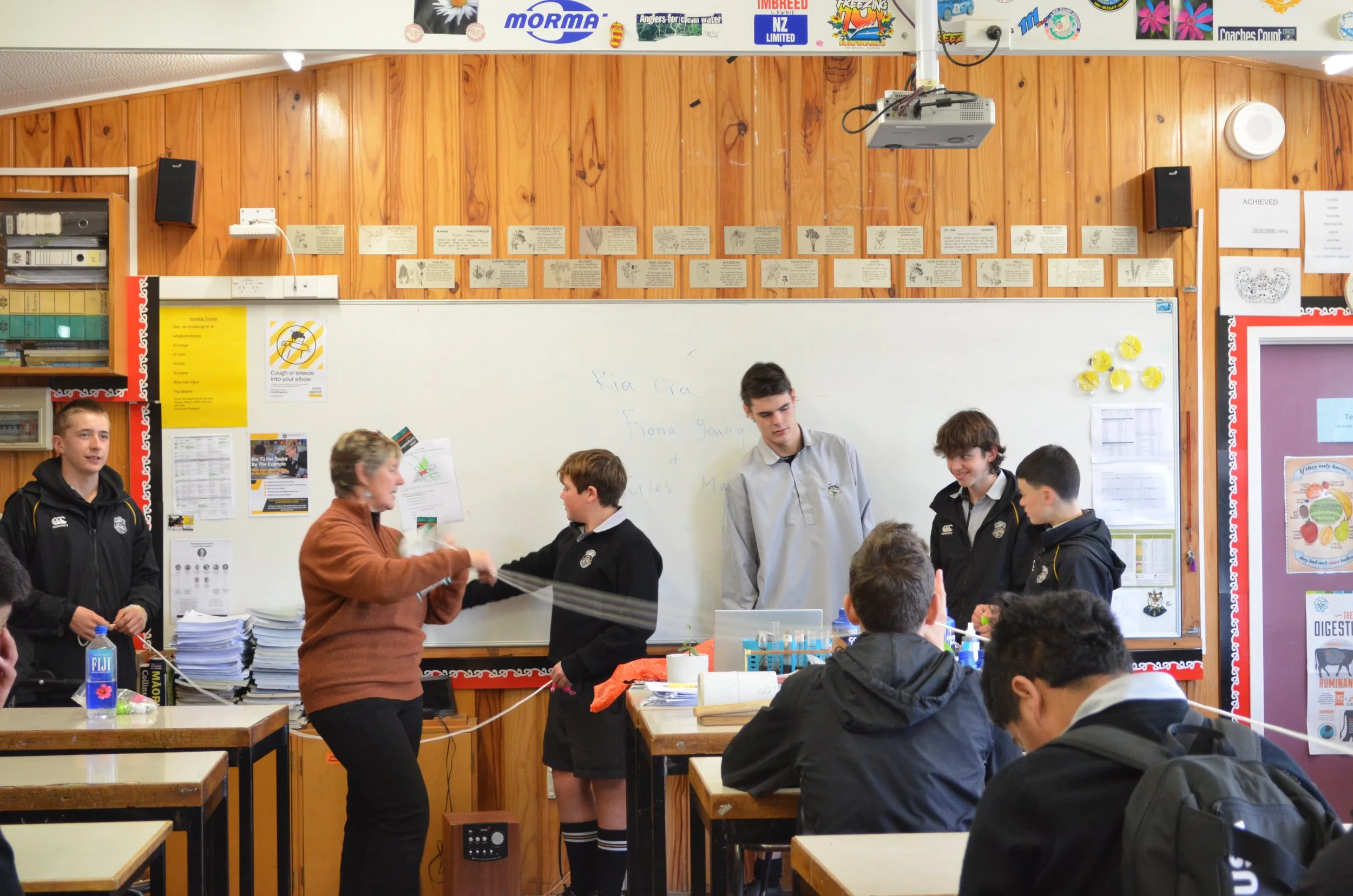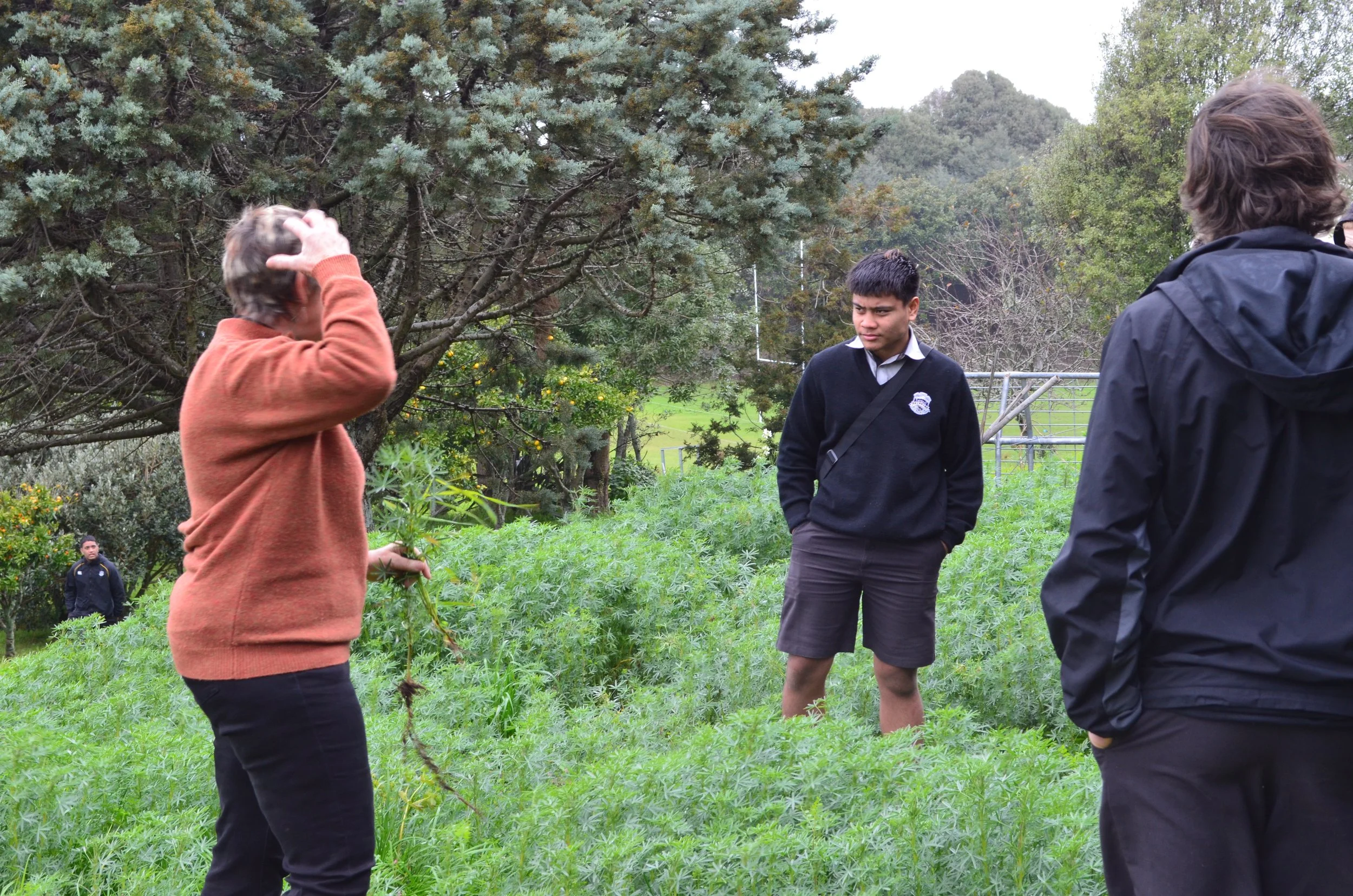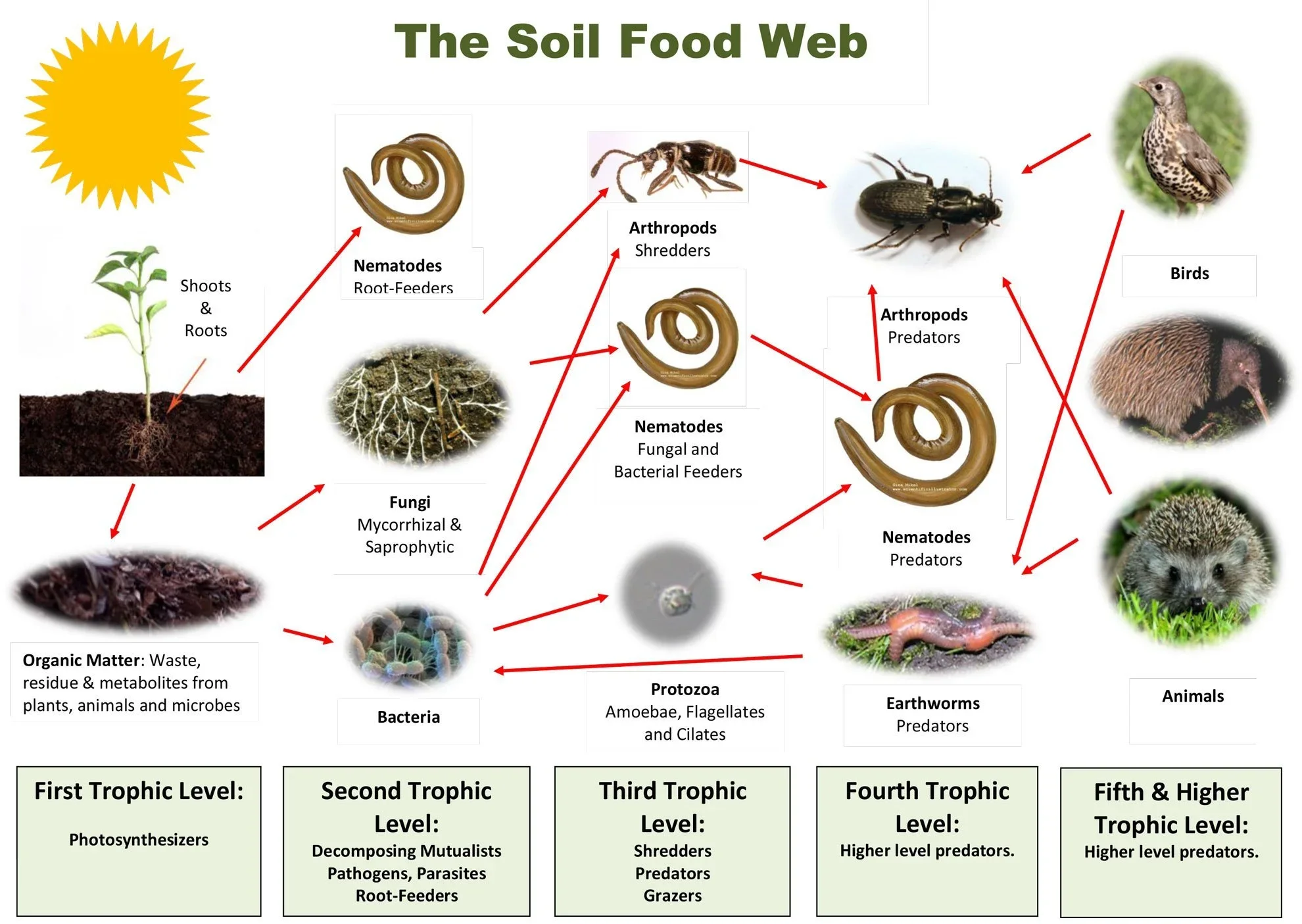CURIOUS MINDS: Community Participatory Science
Regenerative Farming Trials & Transitions
Engaging community, farmers, regenerative agri coaches & educators, scientists and schools to reimagine farming for a thriving future.
This collaborative project was supported through in-kind participation and a $20k grant from the Ministry of Business, Innovation & Enterprise (MBIE). This was made possible thanks to the wonderful ‘Curious Minds Participatory Science Programme’ piloted in Taranaki and ran through Venture Taranaki.
Led by ReGen Solutions (Fiona Young, founder of Taranaki ReGen) this project brought together interested farmers and regenerative specialists, and connected with schools and youth, to grow understanding and explore the opportunity of regenerative agriculture in Taranaki.
Gibson Dairy Farm in Auroa/Kapuni
What We Set Out to Do
The scope of scientific investigation needed to hone down to something very measurable and we focused on soil.
We asked:
What changes are seen in soil in Regenerative trial paddocks comparative to previous management/controls?
Project Objectives:
Equip local farmers with the knowledge and confidence to apply regenerative farming principles, monitor soil health, and learn through workshops.
Pilot a monitoring framework to encourage farmers to track changes.
Grow a collaborative peer support network of farmers, specialists, and other collaborators trialing, supporting and curious about Regenerative Agriculture in Taranaki.
Together, these objectives aimed to build farmer confidence, strengthen feedback for informed management decisions, foster supportive networks, and contribute to a growing body of local evidence and engaged participation - all of which where achieved.
“You can’t manage what you don’t measure.”
Our baseline monitoring approach was inspired and informed by recommendations from Nicole Masters and Jules Matthews of Integrity Soils Ltd.
This included
Comprehensive Soil & Pasture samples sent for analysis to Eurofins Laboratory.
Advanced Biology analysis with Soil Food Web NZ.
Visual Soil Assessments (VSA).
Water Infiltration tests - we used kits from Groundworks.
We also looked at changes in Brix (plant sugars, using a hand-held refractometer) & slake tests (putting soil in a clear glass jar with water to see how stable it is / how active the microbiology is, helping to hold it together).
Some of the monitoring tools we used: A spade for a Visual Soil Assessment (VSA) and a water infiltration kit.
A simple slake test is a powerful, accessible way to understand your soils health and how your management overtime may be impacting it (along with weather conditions).
Visual Soil Assessments (VSA) are another simple and effective way to learn about and monitor your farms soil health and how it’s changing over time. Our farmers could see tangible improvements between their two spring monitoring seasons.
What We Did
30 farmers, from 20 farms around Taranaki, from Tikorangi, Tarata, Waitara, Waitoriki, Norfolk, Ratapiko, Makahu, Omata, Ōpunakē, Mangatoki, Auroa/Kapuni, Pihama & Pātea made up the core group of participants in this community participatory science project.
The focus group had a majority of Dairy Farms, alongside Sheep & Beef with one smaller (lifestyle) farm.
We ran workshops and field days across the region to support and inform the monitoring and trials - project outline below.
We supported farmers to set up and monitor trial areas, with diagonal transects for soil and pasture samples, water infiltration tests, Visual Soil Assessments (VSA), observation and encouraged taking photos to help track changes overtime.
Our monitoring programme was in Spring (November) and repeated the same time of year. Spring and Autumn are both great times to track soil biology, as soil microbes become most active.
2021 farm visit to Rachel and Kenneth Shorts Organic Regenerative Dairy farm, Shortland Farm
We also delivered an engaging workshop at New Plymouth Boys’ High School, introducing students and teachers to regenerative science in action.
We had initially aimed to work with high schools more closely throughout our project, around Taranaki. With good connections and interest to engage. However, we were still navigating the unknowns with covid, lockdowns, mandates effecting some and restrictions for gathering and connecting with schools.
Those connections led to Inglewood High School beginning a water monitoring project at Nine Streams Farm, with interest in their regenerative farming journey - including the protection and regeneration of native forested areas and riparian planting.
Near the end of our Curious Minds Project, we had a fun and engaging session at New Plymouth Boys High School (NPBHS) with Regenerative Ag Coach and Educator, Jules Matthews.
What We Found
Our Curious Minds Journey was an inspiring, informative, encouraging and insightful journey.
Soil and pasture health improved significantly in regenerative trial areas, including better water infiltration, reduced bare ground, increased biological activity, and greater pasture diversity - animals seemed to enjoy the changes too.
Farmers observed more bees, birds, and biodiversity, as well as increased resilience through dry seasons. - all noted improvements within the year.
Participants gained new confidence and enthusiasm for long-term farm monitoring and regenerative management.
There’s a lot of potential (and need) to develop this programme and roll out something similar, though with a wider scope of possibility to engage, inform and support farmers.
“The experience helped us feel more connected and in harmony with the place and the creatures we have the privilege to be kaitiaki of.” — Participating Farmer
Impact & Legacy
The project sparked a ripple of relationships, leading to a successful follow-on research collaboration with Farmers, Massey University, Manaaki Whenua, and other collaborators through the Pivot - Enabling Innovation in Agriculture - Research Award. It nurtured a core group of farmers & collaborators who’ve become connected leaders able now, to share their experiences, learnings and insight with others inspired to learn and give it a go, or in some way engage and support, from the ground up. It also grew inspiration and connections for future school–farm partnerships and deeper exploration of regenerative frameworks.
Farmers were supported to grow confidence and curiousity in sampling and monitoring their soils and pastures. They learnt how to set up a (diagonal) transect line and take soil and pasture samples. They learnt how to do visual soil assessments and water infiltration tests and became equipped with a field guide book for this. In their kit they also received and learnt how to use Water infiltration tests. We conducted slake and brix reading tests. Farmers grew their understanding on how to read and understand the lab analysis’s and other on farm monitoring and what it all can mean in relation to farm management decisions.
The Soil Food Web analysis was especially an eye opener and valued new opportunity for farmers. It grew understanding about the microbiological balance - typically most farms starting on their journey may find their soils are bacterially dominant. This can be seen also with more compacted soils.
The goal is a more balanced ratio between fungi and bacteria. Fungi are superstars of soil and planetary health and seem to be more of a missing element in many farms! We’re proactively working to change this and grow a well informed, capable network of farmers and growers, leading the way.
Image sourced from https://www.soilfoodweb.co.nz/benefits-of-a-health-foodweb
All farmers were encouraged to take photos and grow their observational sense, and to continue to track and share the journey. The experience has nurtured and grown relationships and inspiration for future farmer programmes, discussion groups, events, workshops, activities and more. So much potential!
This was the first pilot project in region with a cohort of farmers actively investigating a regenerative farming journey together like this that we know of with this active monitoring through this citizen science project. Something we look forward to further developing and launching. The monitoring approaches and lessons learnt, where shared also to support the establishment of the Whenua Ora group of Māori farm owners (from Mokau, thoughout Taranaki and Whanganui) that were on a Regenerative agri journey and growing their own Matāuranga (knowledge) to inform their approach to regenerative farming. This was a bigger programme through MPI and additionally allowed for a much broader scope.
This was our first pilot project in region with a cohort of farmers on the regenerative farming journey together, all actively monitoring soil health and other changes. Something we look forward to further developing and launching. If you are interest to be involved in any future farming cohorts at a foundational, or more advanced journey with regen ag, or with a deeper dive into specialised areas of focus, contact fiona@taranakiregen.nz and explore our website for more resources, inspiration and support.
Ngā mihi nui!
Best wishes everyone!
📎 Read more:

